SparkTalks Presenter Profiles | Jan. 23, 2025
Sath Allareddy, BDS PhD
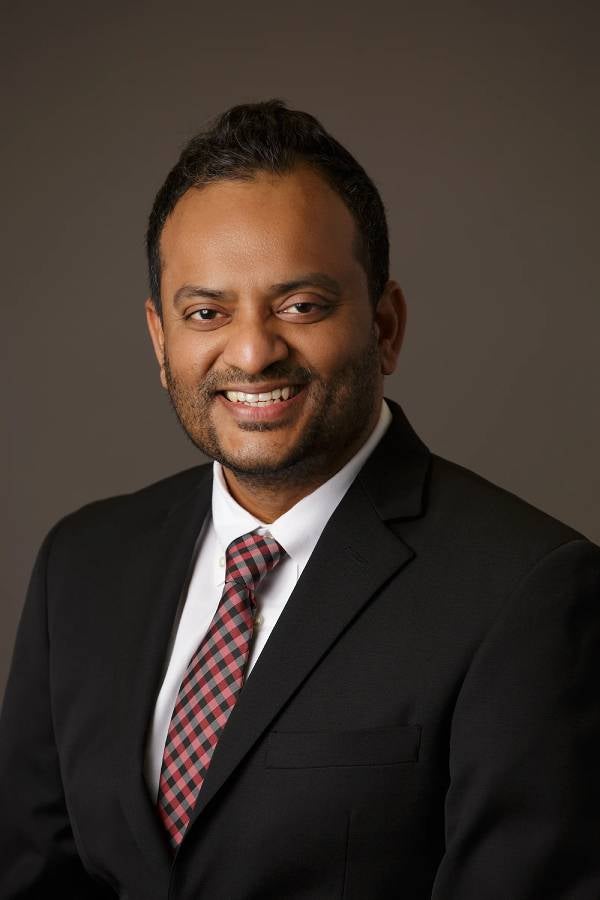
Professor, Brodie Craniofacial Endowed Chair and Head of Department of Orthodontics
Bio: Sath Allareddy serves as Brodie Craniofacial Endowed Chair and head of the UIC Department of Orthodontics. His clinical expertise is in cleft and craniofacial orthodontics. He is one of a handful of cleft and craniofacial orthodontists who are diplomates of the American Board of Orthodontists. His research interests include: big data analytics, artificial intelligence and practice-based research. A proponent of TEAM sciences, he has collaborated with over 300 researchers affiliated with more than 30 different universities worldwide. He published over 270 research articles in peer-reviewed journals and presented over 300 posters at regional/national/international scientific meetings. He serves as the director of the Specialty Node of the National Dental Practice-Based Research Network, one of the largest funded studies by NIH/NIDCR. Allareddy was a recipient of the Harvard University Presidential Scholarship Award while a resident.
Presentation title: Applications of Artificial Intelligence in Orthodontics and Craniofacial Health
Abstract: There has been tremendous infusion of newer technologies such as artificial intelligence and big data in the health care landscape. This has fundamentally altered the way we diagnose, treatment plan and render treatment. Recently, there has been an increasing interest and emphasis in delivering precision/personalized orthodontics care. A high level overview of how AI has changed the craniofacial health landscape and how we are using AI to render precision orthodontics care will be presented. Specifically, applications of AI in orthodontics such as remote monitoring, AI-based predictive analytics, segmentation and treatment planning, and growth predictions will be presented. Some of the challenges (technical and nontechnical) in implementation and interpretation of AI models in health care and resulting ethical ramifications will be discussed.
Ross Arena
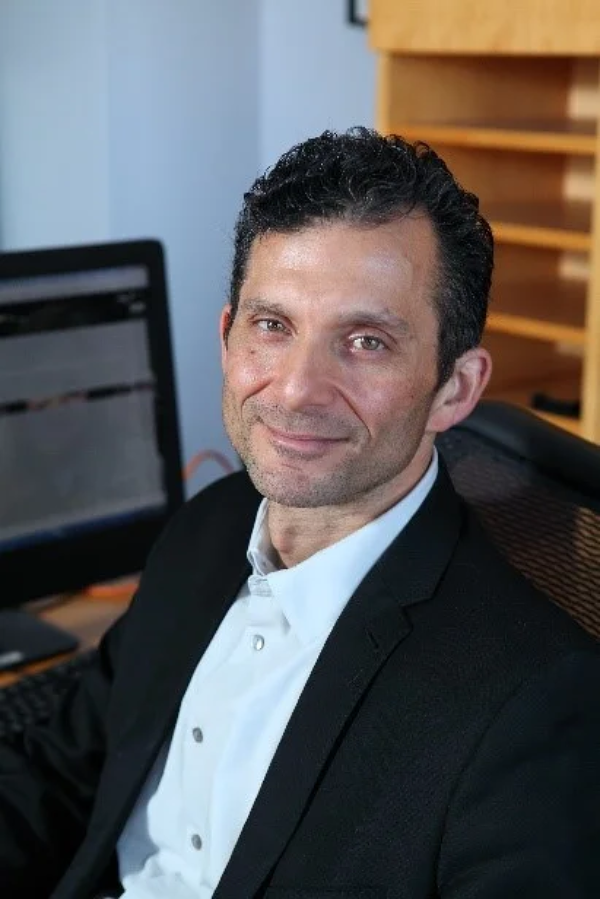
Professor and Department Head
College of Applied Health Sciences
Bio: Ross Arena is a professor and department head of physical therapy at UIC. He received his PhD in physiology in 2001 from the Medical College of Virginia/Virginia Commonwealth University. Arena’s expertise centers on healthy living medicine, with over 1150 peer-reviewed publications, abstracts and book chapters. His Google h-index is currently 112 (ranked 5,694 out of 2,400,048 worldwide – top 1%) with more than 87,000 citations. As a recognized leader in exercise science and rehabilitation, he has served as an author on 20 professional scientific statements, which are looked upon as the standard for clinical practice. He was also one of the founding members of the Fitness Registry and the Importance of Exercise: An International Database, now the global standard for normative exercise testing reference values. He has led the successful implementation of several innovative healthy living initiatives in the academic, clinical and community settings, most recently founding the Healthy Living for Pandemic Event Protection (HL-PIVOT) network. Physical activity is now being integrated into the electronic health record, supported by major contributors to the field, including Arena. To this point, he has collaborated with more than 1500 co-authors from around the world and is currently the most published academic physical therapist in the history of the profession.
Presentation title: The Ecology of Population Health and Well-Being: A Framework and Perspective
Abstract: Social structures have become focal points in considering how to address the circumstances and conditions under which people live their lives. Yet, the many interactions among the multiple factors that make up social and structural determinants are complex, interdependent, interactive, dynamic and multilevel. This presentation introduces key components of an evidence-informed ecology of population health and well-being for the organization of multiple drivers and feedback mechanisms that collectively represent a generative force toward population health and well-being.
The proposed ecological framework supports explanatory and exploratory considerations for prevention and management of population health and well-being issues. Regional cultures influence politics through civic engagement. Politics has a direct influence on policies developed and enacted which, in turn, give rise to changes in the physical, social and economic environments. Those environments influence the behaviors and decision-making of people and populations that either support or threaten health by the emergence or proper management of risk factors. Unabated risk factors increase chronic disease prevalence and ultimately impact premature mortality in the population. Threads running throughout the framework include the need to address power dynamics and social capital.
This talk introduces an ecological framework and perspective on population health and well-being that recognizes the complexity and interconnectedness of multilevel domains that collectively exert influence on the direction of changes in population health and well-being. Culture is the overarching driver uniquely linked to civic engagement and resulting political realities underpinning the power dynamics responsible for infrastructure and ultimate the habits and behaviors of people— at both the individual and social levels. Future research should consider this ecological framework of population health and well-being, apply it and improve it.
Sobia Bilal, BDS, MSc, PhD

Associate Professor
Director of Interprofessional Education, UIC College of Dentistry
Bio: Sobia Bilal is an associate professor in the Division of Prevention and Public Health and the Director of Interprofessional Education (IPE) at the UIC College of Dentistry. She holds a bachelor’s degree in dentistry and master’s degree in dental public health from the University of London and a PhD from the University of Malaya, Malaysia. With her academic and research experience, her vision for IPE at UIC is to cultivate a culture of mutual respect, teamwork and integrated care among health care professionals. By promoting interdisciplinary collaboration, complex health issues can be addressed more effectively, ensuring comprehensive patient care and advancing public health initiatives. She has enhanced chairside prevention curriculum to improve patient outcomes. Her research paradigms include quantitative, qualitative and mixed-methods. Her areas of research focus are health promotion and disease prevention, tobacco control, medical education and health-related quality of life. Other than scientific evidence her contributions include development and implementation of various health promotion programs and facilitation of various scholarly training programs.
Presentation title: Interprofessional Education; Dentistry is an integral part of health care and COD is an integral part of UI Health
Abstract: The College of Dentistry is an integral part of UI Health. We contribute in enhancing oral well-being, which is integral to overall wellbeing of our patients. Based on the UIC mission for IPE/ICP and CODA Standards, the College of Dentistry is dedicated to preparing collaborative, practice-ready workforce. We at the College of Dentistry are fortunate to have IPE Champions, who are actively engaged and work closely with the Office of the Vice Chancellor for Health Affairs as Steering committee members, task force MEMBER for CAIPER. IPE activities are integrated in the curriculum across cohorts in collaboration with various health care stakeholders. One of the IPE activities with College of Applied Sciences secured 2023 Interprofessional Teaching in Action Matters (I-TEAM) Award. Moving forward, our aim is to work toward integrating a more robust spiral curriculum that would facilitate in translating IPE into collaborative practice. The college is working closely with the Office of the Vice Chancellor for Health Affairs in developing central IPE assessment system with the aim to enhance scholarly activities in this domain. Aligned with Quintuple Aim, our ultimate goal is to improve our patient’s health outcomes, provide affordable and accessible care, promote safety culture and contribute in optimizing UI Health services.
Basmattee Boodram
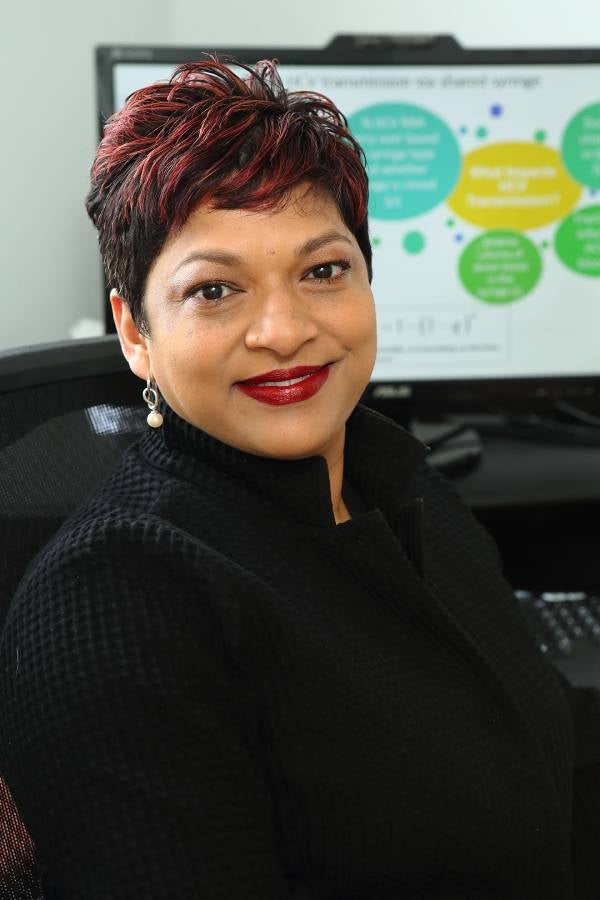
Professor, Community Health Sciences
Bio: Basmattee Boodram is an infectious disease and social epidemiologist. Boodram’s primary research focus is the interplay of individual, social network, social geographic and other structural factors associated with hepatitis C virus, HIV and overdose risk among people who inject drugs. Since 2009, Boodram has developed a robust research portfolio that focuses on social networks and social geography of people who inject drugs; three comprehensive intervention programs to reduce hepatitis C virus transmission, reduce overdose risk, and increase access to hepatitis C virus and medication-assisted treatment for people who inject drugs; and empirical data-driven, realistic agent-based computational models to examine hepatitis C virus elimination, medication for opioid use disorder uptake, and the impact of harm reduction interventions on overdose risk among people who inject drugs. For the past 20 years, Boodram has been a member at the Community Outreach Intervention Projects, a center within the UIC School Public Health that has conducted community-based HIV and hepatitis C virus research and delivered harm reduction services to people who inject drugs and their partners since 1986. As former operations director, Boodram managed large-scale harm reduction, HIV and hepatitis C virus counseling and case management service delivery programs that were mostly funded by city and state health agencies.
Presentation title: Risky social spaces and network structures of young people who inject drugs
Abstract: Hepatitis C virus is the most common blood-borne pathogen in the U.S. and incidence has been increasing for over a decade, a trend that has been linked to simultaneous increases in opioid and injection drug use. Sharing contaminated injection drug use syringes and other equipment is the primary mode of hepatitis C virus transmission in the U.S. Between 2014 and 2021, the incidence of hepatitis C virus increased 129%, with the highest rates among people who inject drugs who reside in rural and suburban areas and those age 20–39 years. While there has been significant focus on the growing opioid epidemic in rural areas, few studies have included young suburban people who inject drugs; six of the existing studies were conducted by our team. Recent studies have highlighted the importance of employing the syndemic approach to study opioid misuse, overdose, hepatitis C virus and HIV, along with the social and environmental contexts where these interrelated epidemics occur in already marginalized communities. Social interactions and spatial contexts are important structural factors that are understudied. Our study examines the role of social and geographic spaces in fostering risk behavior and social and risk (e.g., injection) network formation among young people who inject drugs.
Participants were mostly non-Hispanic white (59%) and urban (42%), suburban (28%) and transient (30%). We identified a spatial area with concentrated risky behaviors for all groups near a large outdoor urban drug market area. The urban group (80%) reported a smaller concentrated area (14 census tracts) compared with the transient (93%) and suburban (91%) with 30 and 51 census tracts, respectively. Compared with other urban areas, the risky activity space features significantly higher neighborhood disorder and higher poverty rate (p<0.001 for all). Significant (p<0.01 for all) differences were observed in social network structures: suburban had the most homogenous network in terms of age and residence and transient had the largest networks.
We identified a convergence of hepatitis C virus risk spaces among people who inject drugs from urban, suburban and transient groups in a large outdoor urban drug market area, which highlights the need for considering the role of risk spaces and social networks in the development of hepatitis C virus transmission.
Joanna Burdette
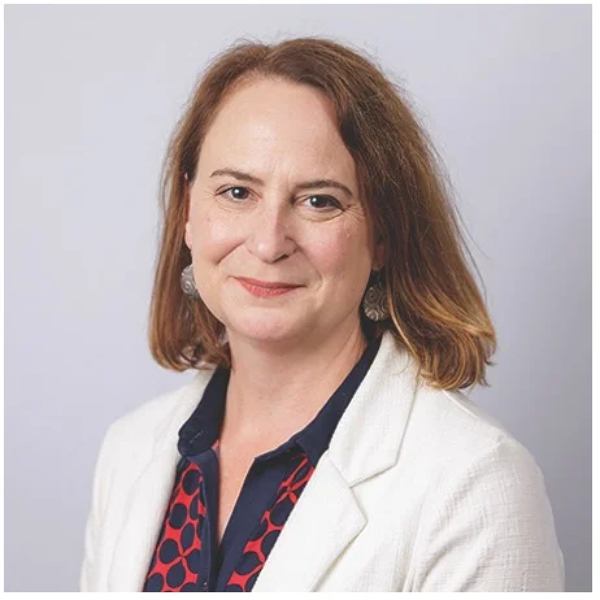
Mika Professor of Pharmaceutical Sciences
Associate Dean for Research Pharmacy
Bio: Joanna Burdette, PhD, is the Edward and Josephine Mika Professor in the UIC Department of Pharmaceutical Sciences and serves as the associate dean for research in the UIC Retzky College of Pharmacy. Burdette’s research developed organ-on-chip microfluidic models of the fallopian tube to define early events responsible for high-grade serous ovarian cancer formation in response to ovulation. The Burdette Lab interrogates the metabolomics of metastasis of high-grade serous cancer at the interface between the ovary and omentum using imaging mass spectrometry and frequently collaborates to uncover new natural products as anti-cancer therapies. Burdette has been the recipient of the Liz Tilberis Scholar Award from the Ovarian Cancer Research Fund, UIC Rising Star and UIC Researcher of the Year in Basic Life Sciences. She is currently the co-leader of the cancer biology program of the UI Cancer Center and co-director of the UIC Institutional Research and Academic Career Development Award postdoctoral training program.
Presentation title: The role of the fallopian tube in high grade serous cancer
Abstract: Ovarian cancer is the fifth leading cause of cancer related death in women. If detected early, the chance of survival is over 90%, but most women are diagnosed in the late stages of disease. It is now recognized that a large percentage of high grade serous ovarian cancers arise in the fallopian tube and colonize the ovary as the primary metastatic step. One of the risk factors associated with ovarian cancer is the lifetime number of ovulations. Few models are currently available that allow the process of ovulation and the development of ovarian cancer to be studied.
To address this gap, our team developed a microphysiological platform called PREDICT-multi-organ-system (MOS). PREDICT-MOS contains 30 wells for culturing organs and 60 pumps with precisely controlled flow rates. Human fallopian tube tissue can be grown in an air-liquid interface, while murine ovaries can also be grown in the platform and stimulated to ovulate and produce hormone and secretion profiles. Importantly, these secreted factors are contained in the device within the media and can therefore precisely model local concentration gradients and temporal expression. Overall, the integration of MPS technology with key human tissues and engineered organs allows for the in-depth analysis of the role of ovulation in the onset and spread of high grade serous cancer from the fallopian tube.
Leah Burt, PhD, APRN-FPA, ANP-BC, CHSE
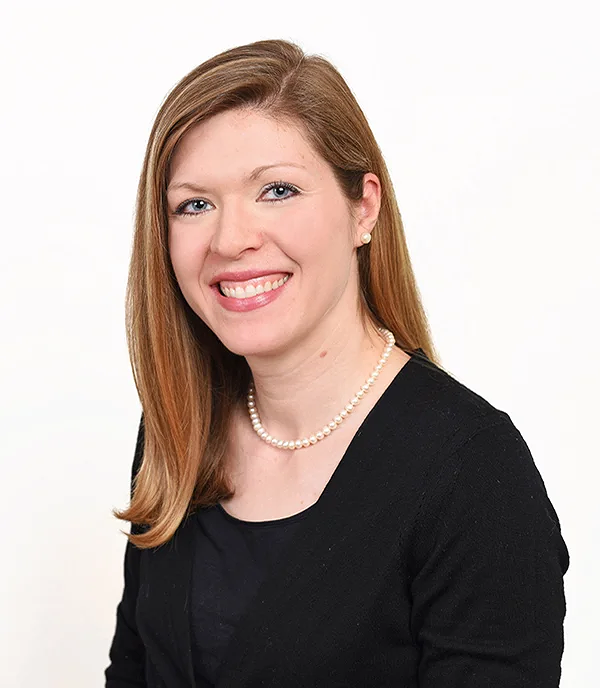
Clinical Assistant Professor
Director, Adult-Gerontology Primary Care Nurse Practitioner Program
Bio: Leah Burt, PhD, APRN-FPA, ANP-BC, CHSE, is an educator and scholar who leads innovation in nurse practitioner education. Dr. Burt is a board certified, full practice authority adult primary care nurse practitioner, clinical assistant professor and director of the Adult-Gerontology Primary Care NP Program at the University of Illinois Chicago. Certified as a Healthcare Simulation Educator, Burt completed postdoctoral training in simulation-based education design and research at University of Illinois College of Medicine Simulation and Integrative Learning Institute, where she now serves as director educational quality assurance. Burt is a former Fellow in Diagnostic Excellence through the Society to Improve Diagnosis in Medicine and a recipient of the organization’s 2023 Emerging Leader Rising Star Award in recognition of her contributions to diagnostic excellence and accelerating career trajectory. She is currently a leadership-appointed member of the American Association of Nurse Practitioner Research Committee and the National Organization of Nurse Practitioner Faculties Simulation Committee. Burt’s scholarship focuses on development and evaluation of innovative, simulation-based educational strategies to foster nurse practitioner student competency. In addition, she maintains an active nurse practitioner clinical practice at UI Health in the department of emergency medicine.
Presentation title: Coaching for Competency: Innovative Simulation Methodology to Enhance Healthcare Student Performance through Standardized Patient Feedback
Abstract: This presentation will describe development, outcomes and future directions for innovative simulation education methodology whose goal is to enhance health care student clinical competency through curated performance feedback delivered by standardized patients.
David Camacho, PhD, MSW, MSG
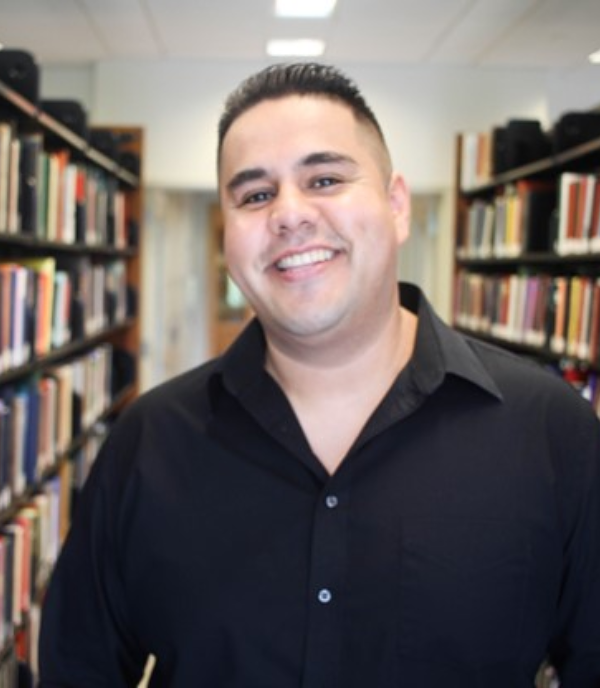
Assistant Professor, Disability and Human Development
Bio: Dr. Camacho is an Assistant Professor in the Department of Disability and Human Development at the University of Illinois, Chicago. He earned his PhD in Social Work in Advanced Clinical Practice at Columbia University. His postdoctoral training is in Behavioral Geriatrics from the Weill Cornell Medicine Department of Geriatrics and Palliative Medicine. Dr. Camacho’s research focuses on developing and testing strategies that enhance the prevention and management of prevalent and morbid conditions associated with aging (e.g., chronic pain, loneliness, cognitive impairment) among Latino (Hispanic/Latinx) and other minoritized older adults. His work has been supported by the Council on Social Work Education Minority Fellowship Program, Columbia Center for Interdisciplinary Research on Alzheimer’s Disease Disparities, Cornell’s Translational Research Institute on Pain in Later Life, and the National Institute on Aging. His research is informed by his extensive direct clinical practice as a bilingual (English/Spanish) and bicultural (Mexican and American) clinical social worker as well as his personal experiences as a caregiver.
Presentation title: Older Latino Adults: ¿Dónde estamos?
Abstract: Chronic pain, loneliness, and cognitive impairment are important public health issues. These issues are positively associated with greater impairments in physical functioning, earlier mortality, and substantial healthcare costs. However, the existing literature provides a limited understanding of the experiences and treatment of these conditions in older Latino adults. The older Latino population is diverse (e.g., country of origin, acculturation, includes sexual and gender minorities) and projected to reach 20 million by 2060. There is a need for research and psychosocial treatments that acknowledge diversity, common contextual stressors and cultural factors experienced by older Latinos. In this talk, I will highlight my recent work that aims to elucidate the experiences of chronic pain, loneliness, and cognitive impairment in older Latinos and inform inclusive evidence-based interventions for this growing group.
Jose Camacho

Professor and Director, School of Literatures, Cultural Studies and Linguistics
Bio: Jose Camacho is the director of the School of Literatures, Cultural Studies and Linguistics. He studies language as a cognitive and social ability. His interests include syntax and morphology (how smaller language parts are put together into larger ones) in monolingual speakers and bilingual speakers, how language operates as a social tool and language as a human right. His focus is the syntax of Spanish (monolingual and bilingual) and the indigenous languages of the Americas.
Among Camacho’s current projects are studying the syntax of numbers in Spanish. Some numbers mark number agreement differently than others (“cien libros” means “100 books,” yet “cientos del libros” means “hundreds of books”). Under what conditions and how does this happen?
He is also studying expressions with missing parts. For example, the word corresponding to “one” (“I have a red book and you have a blue one”) is missing in Spanish (“Tengo un libro rojo y tú tienes uno azul”). When is this possible? How does it change from Spanish to other Romance languages? Yet sometimes objects can be understood but not expressed: “I like eating (something).” When is this possible? How does this relate to other “missing” items of different kinds?
Presentation title: How speakers represent how they know something
Abstract: Speakers have ways of representing the source of their knowledge. “I allegedly ate the last piece of cake” ironically implies there is no first-hand information about the disappearance of the cake. In many languages, the source of information (evidentiality) is encoded in specific parts of words that can indicate “first-hand,” “hearsay” or “inferred” information, and these tend to appear close to the beginning of a sentence.
Latin American Spanish uses the word “dizque,” derived from “dice que” (“says that”), to indicate hearsay information and, sometimes, disbelief. What makes dizque interesting is that it can appear with different parts of a sentence, but it always indicates hearsay about the whole statement. The presentation will show how dizque appears with different words in a sentence and how to resolve the disparity between where it appears and its wide-ranging scope.
Evidentiality is important for understanding both how languages work in general and how speakers map their source of evidence to language-specific grammatical mechanisms, with important implications for translation, AI models and intercultural communication.
Deborah Carroll
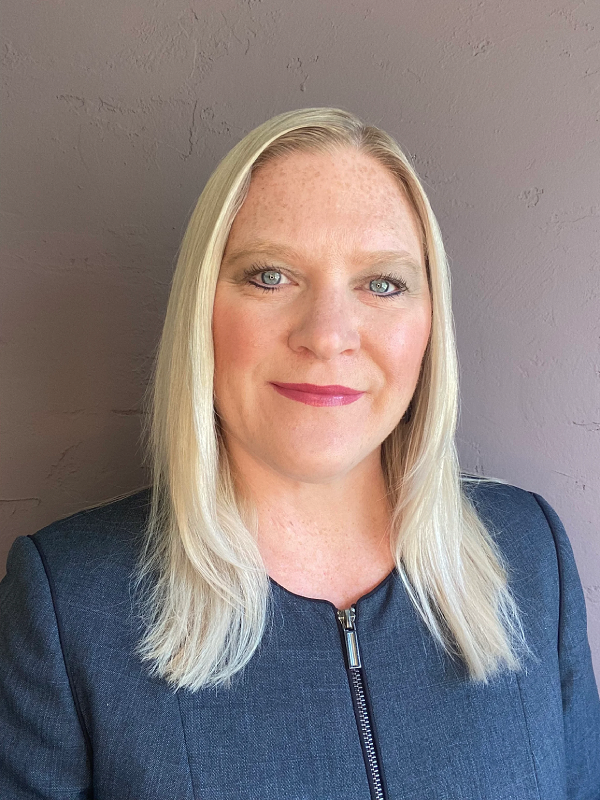
Professor and Head, Public Policy, Management, and Analytics
Bio: Deborah Carroll is professor and head of the UIC Department of Public Policy, Management, and Analytics, and director of the Government Finance Research Center in the College of Urban Planning and Public Affairs. Her research focuses on financial management and fiscal policy of state and local governments, particularly related to taxation, revenue diversification and urban economic development, as well as the interconnectedness of the public and nonprofit sectors and the implications for tax policy, tax burden and public service provision. Carroll has produced more than 70 scholarly publications and 20 white papers and technical reports reflecting more than $2.75 million in research funding. She has been invited to share her research and expertise with academic and practitioner audiences across the U.S. and in several other counties. Carroll began her career in public service as a budget and policy analyst for the City of Milwaukee, Wisconsin. With a passion for applied research intended to inform public policy and improve public sector management, Carroll pursued her PhD in political science from the University of Wisconsin-Milwaukee, which she completed in 2004 along with a Graduate Certificate in State and Local Taxation from the UWM Sheldon B. Lubar School of Business.
Presentation title: Professionalizing the Public Sector: Illinois’ Certified Public Manager Program
Abstract: This presentation describes Illinois’ Certified Public Manager® (CPM) Program, which is a comprehensive and nationally accredited professional development program designed to prepare individuals for management-level careers in federal, state, local governments and in other organizations with a public purpose. The CPM Program’s primary goal is to improve the performance of public sector managers and the organizational performance of state, local and federal governments and other public-serving organizations.
The Government Finance Research Center in the College of Urban Planning and Public Affairs at UIC delivers the only accredited CPM Program for the State of Illinois. The National Certified Public Manager® Consortium (NCPMC) establishes and preserves standards for the CPM designation, which is awarded to public sector employees who have completed 300 hours of study through a CPM program accredited by the NCPMC. The program is a comprehensive course of study by which public managers receive the education and training needed to meet the unique demands and challenges of their profession. Based upon seven core competencies, the curriculum uses theory as the foundation and applies it to practical problems facing managers in public-serving agencies.
Shih-Ying Cheng
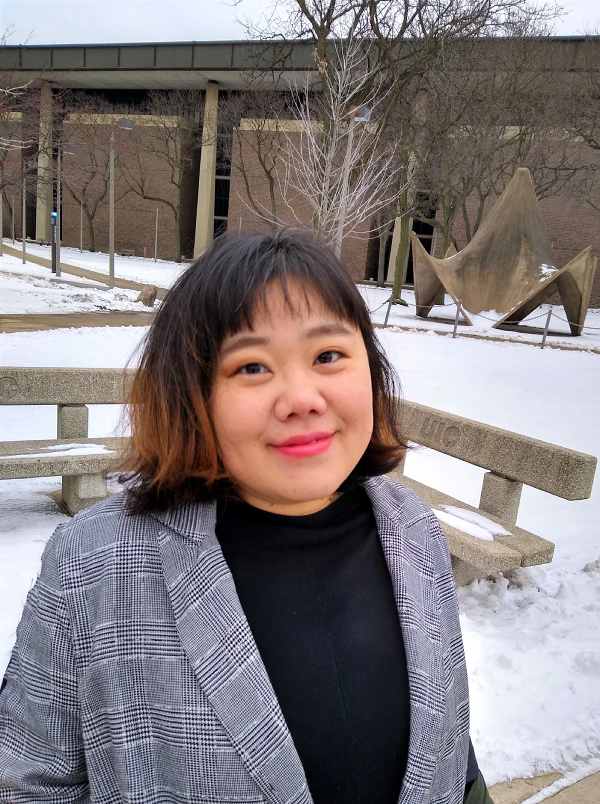
Assistant Professor, Jane Addams College of Social Work
Bio: Shih-Ying Cheng, MSW, PhD, is an assistant professor at the Jane Addams College of Social Work, University of Illinois Chicago. Her research focuses on gender-based violence, particularly severe violence and its impact on vulnerable populations. She explores the effects of violence on survivors, their recovery and healing processes, and the implementation of evidence-based assessments and interventions. Her work also examines the intersection of gender-based violence and the Asian immigrant community in the United States, specifically investigating Asian immigrant survivors’ help-seeking behaviors and culturally adapting evidence-supported interventions and assessments for this population.
Presentation title: Breaking Barriers: Culturally Sensitive Services for Asian Immigrant Women Who Experience Intimate Partner Violence
Abstract: Intimate partner violence, encompassing physical and sexual violence, stalking and psychological aggression by an intimate partner, is a significant public health issue affecting individuals worldwide. Over one-quarter of ever-partnered women globally report experiencing intimate partner violence. This violence leads to considerable physical and mental health consequences, which can be intensified by intersecting identity factors such as race, ethnicity, immigration status and socioeconomic background. These factors often heighten women’s risk of negative health outcomes and can create unique obstacles when survivors navigate intimate partner violence.
In particular, women from racially minoritized groups, immigrants and individuals with lower incomes face additional challenges in seeking help and accessing services to mitigate intimate partner violence’s impacts. Among this group, Asian immigrant women represent an underserved and under-researched population. A review of case files from domestic violence organizations in Illinois found that Asian American survivors were underrepresented compared with their state population proportion. They were less likely to receive referrals to domestic violence programs from law enforcement and reported greater needs for language support, financial assistance and legal aid in comparison to survivors from other racial and ethnic groups.
This presentation will discuss the barriers Asian immigrant survivors face when seeking help to address intimate partner violence, with insights on practical strategies to reduce these barriers and improve support accessibility.
Jonathan Coloff, PhD
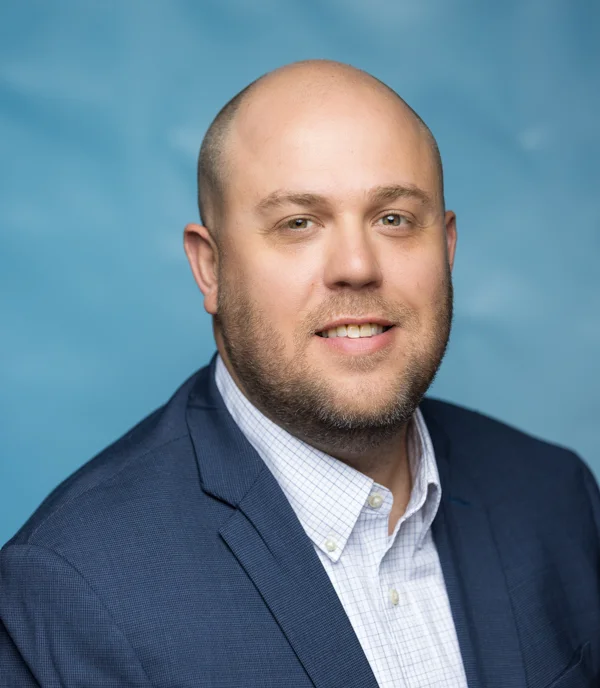
Associate Professor, Department of Physiology and Biophysics
Bio: Jonathan Coloff earned his bachelor’s degree in biology from Iowa State University and his PhD in pharmacology from Duke University in 2010. After performing his postdoctoral studies in Dr. Joan Brugge’s lab at Harvard Medical School, Coloff started his independent lab in at UIC in 2018, where his work is focused on identifying novel approaches of targeting metabolism for cancer therapy. The Coloff Lab has discovered that luminal/ER+ breast tumors (the largest subtype of breast cancer) are auxotrophic for the non-essential amino acid serine. This discovery motivated current work in his lab that is aimed at developing strategies of targeting serine auxotrophy for cancer treatment, such as dietary serine starvation, inhibition of serine uptake and the development of a novel serine degrading therapeutic enzyme. Other work in the Coloff Lab focuses on understanding how nutrient availability affects how cancer cells respond to therapeutic agents and how changes in metabolism and related processes promote resistance to endocrine therapy in ER+ breast cancer. Coloff is currently the principal investigator on four R grants from the National Cancer Institute, and is a co-leader of the Cancer Biology Research Program at the University of Illinois Cancer Center.
Presentation title: Targeting serine metabolism for cancer therapy
Abstract: The long-term goals of the Coloff Lab are to understand how the unique metabolic phenotypes in cancer cells arise and to discover approaches of targeting metabolism for cancer therapy. Thus far our work has been focused on two broad areas: how tumor metabolic phenotypes are influenced by tumor lineage,and how nutrient availability can affect tumor metabolism and therapeutic response. Our work on tumor lineage has led to our discovery that luminal/ER+ breast tumors are auxotrophic for the non-essential amino acid serine. Ongoing work in this area is focused on developing strategies of targeting serine auxotrophy for luminal breast cancer treatment. This includes our recent identification of ASCT2 as the primary serine transporter in cancer cells.
We are also collaborating with Dr. Everett Stone’s lab the University of Texas in Austin to develop and characterize a novel serine degrading therapeutic enzyme, eSDH, as a potential therapy for serine auxotrophic tumors. Our work on nutrient availability has highlighted the importance of utilizing tissue culture media that more accurately recapitulates the in vivo microenvironment, especially when studying how cancer cells respond to therapeutic agents. We are also developing the first physiological lipid media and determining how physiological lipid levels affect breast cancer cell biology.
Finally, my laboratory has also become interested in identifying mechanisms that promote endocrine therapy resistance in ER+ breast cancer. We are currently evaluating potential roles for the integrated stress response and ceramide metabolism in promoting endocrine therapy resistance.
Judith Cook
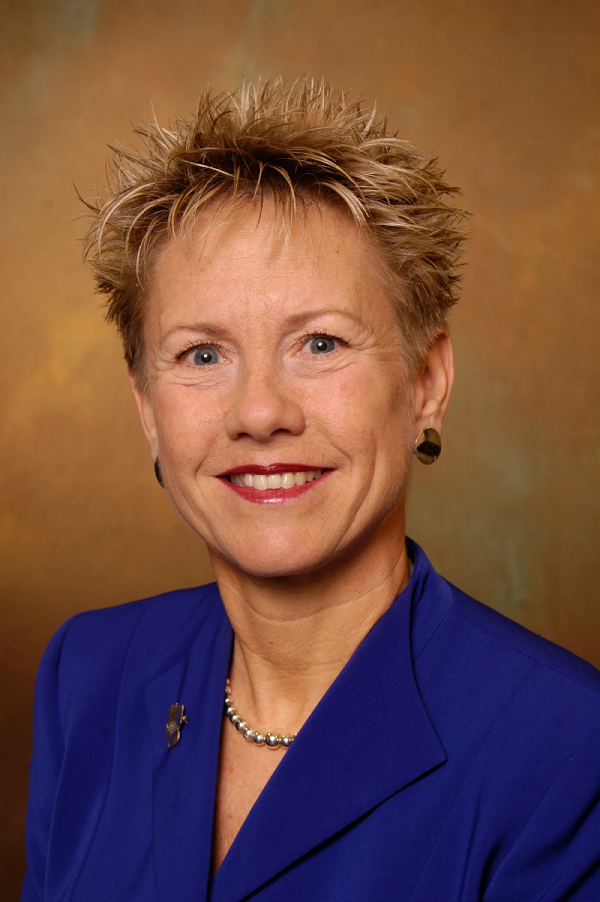
Professor of Psychiatry
Bio: Judith A. Cook is professor of psychiatry and director of the Center on Mental Health Services Research and Policy in the department of psychiatry in the College of Medicine. She is an internationally recognized authority on mental health services research, specifically the study of clinical and rehabilitation outcomes of children, youth and adults receiving community-based care. Cook also designs and studies innovative programs to enhance the health and behavioral health of vulnerable populations. Beginning in 1990, she received seven consecutive, five-year, federally-funded research center awards. Over the past three decades, she has studied employment and education outcomes, mental health self-management, integrated behavioral health care, peer service delivery and psychiatric rehabilitation. She works with federal, state and local authorities on behavioral health service system redesign and alternative financing strategies for high quality mental health services. She has consulted with multiple U.S. government agencies, collaborated with most U.S. states, and worked with policymakers internationally. Her University of Illinois awards include the University Scholars Award, Distinguished Faculty Award, Researcher of the Year in Clinical Sciences, and Mentor of the Year Award.
Presentation title: Shortening the time from scientific discovery to widespread implementation through community engaged research
Abstract: A major challenge in mental health services research involves shortening the time from scientific discovery to widespread implementation. This can occur by involving people with lived experience of mental illness (i.e., peers), clinical service providers and other community stakeholders as full research partners. This coincides with the current trend of using peer-delivered services to address U.S. mental health workforce shortages and the resultant need to study their effectiveness. Accomplishing these twin objectives can require training and supporting a sizable peer workforce to deliver the interventions being studied, while working collaboratively with peer co-investigators, service providers, advocates and policymakers.
Lessons learned about how to accomplish these twin objectives in the context of extramurally funded research will be discussed using illustrations from the presenter’s research career. In one study, 30 peer providers were hired and trained to deliver mental illness self-management education to over 500 adults with serious mental illness throughout Ohio. Another project involved working with peers, providers and state administrators to develop and study a model giving several hundred people direct control over public funds to purchase their own mental health services in Texas and Florida. A third example involved training over 80 interviewers, many with lived experience, to identify mental health and substance use disorders among several thousand men and women living with HIV in 10 U.S. states.
Large, rigorous studies with many moving parts, involving multiple constituencies, requires use of skill sets beyond those taught in the classroom. Yet, there are clear rewards when providing a strong evidence base for novel therapeutic approaches with high user satisfaction and ready for immediate, large-scale adoption. Today’s greatest challenges are combining intervention science with implementation research, and involving end-users as collaborators to develop evidence-based treatments that can be brought to scale quickly and effectively.
Julie Dowling, PhD
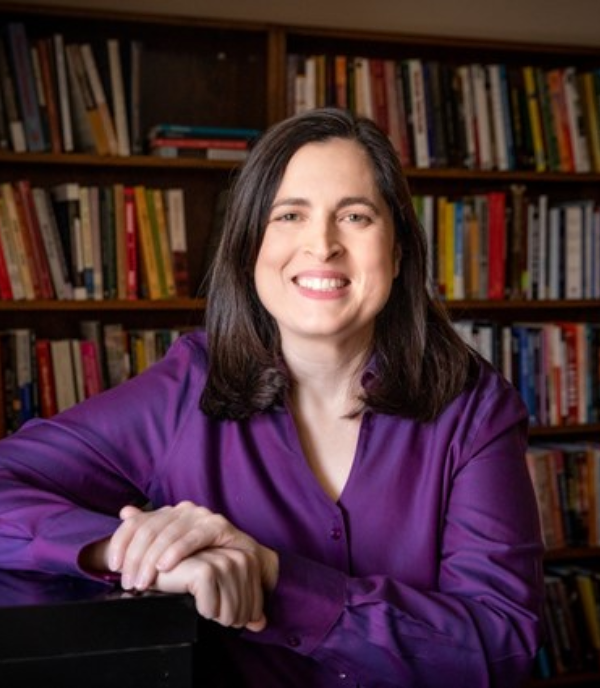
Associate Professor of Sociology and Latin American & Latino Studies
Bio: Julie A. Dowling is Associate Professor of Sociology and Latin American & Latino Studies at the University of Illinois Chicago. Dr. Dowling is a Latina sociologist who researches Latinos and racialization. Dowling’s research on Latinos and the Census garnered national attention and in 2014 and she was appointed to the federal advisory committee to the US Census Bureau—the National Advisory Committee on Racial, Ethnic and Other Populations. She served on the committee for 6 years, chairing the committee during the 2020 Census. Her work contributed to Census efforts to redesign how race is measured. Moreover, Dowling headed a committee working group aimed at maximizing the inclusion of hard-to-count and marginalized populations, such as racial/ethnic minorities, low-income, linguistic minority, and immigrant populations. In 2022, Dowling was recognized for extraordinary efforts to bring sociological scholarship into the public eye with a national award from the American Sociological Association. She was awarded ASA’s Public Understanding of Sociology Award in recognition of her continued engagement and leadership in public arenas with institutions whose decisions and policies have a major impact on the lives of immigrants, refugees, and the larger community.
Presentation title: Latino/a Identity in the Census and Beyond
Abstract:Race is a social construct, but one with incredibly real consequences in our society. My research and community engagement has focused on how definitions of race impact the quality and counts of Latinos in the US Census. For decades, Latinos have not been counted as a racial group on the census, but rather, as a separate ethnic origin. The result of this separation has led to incredibly inaccurate data on race for Latinos, and contributed to the undercount of these communities, including a 5% undercount of Latinos in the 2020 Census. Undercounts of minority communities such as this result in a devastating loss of federal and state funding as well as political representation for a full decade, making the Census crucial to the fight for racial equity. Serving on the federal advisory committee to the US Census and chairing that committee through the 2020 Census, I worked to assist in strategies for outreach to improve counts of vulnerable communities, and assisted in providing guidance and feedback on the redesign of the race question to include Latinos. The new federal guidelines for race measurement, as implemented by the Biden administration, will now include Latinos and Middle Eastern persons. This is big step forward for equity in data collection and will dramatically improve data collection at the federal and state level.
Joan Farre-Mensa, PhD

Associate Professor and Interim Department Head, Department of Finance
Bio: Joan Farre-Mensa is an associate professor and interim head of the UIC Department of Finance. His teaching and research interests are in entrepreneurial and corporate finance. Some of his recent work examines how the deregulation of U.S. securities laws in the 1990s has facilitated the process of raising capital privately, thus helping explain the decline in U.S. IPOs and changing the going public vs. staying private trade-off. In another highly-cited paper, Farre-Mensa and co-authors examine how patents help alleviate startups’ financing constraints by helping them signal their quality to potential investors. Farre-Mensa’s most recent work, co-authored with UIC colleague Jun Chen, examines the role played by the QSBS capital-gains tax exemption in facilitating entrepreneurship and innovation in the U.S. economy.
Professor Farre-Mensa’s research has been published in the leading finance journals, including the Journal of Finance, the Review of Financial Studies, the Journal of Financial Economics, and the Journal of Financial and Quantitative Analysis. His papers have received over 3,600 citations. Prior to joining UIC in 2019, he was in the faculty at Harvard Business School and Northeastern University. Farre-Mensa earned his PhD in economics from New York University in 2011.
Presentation title: Private or Public Equity? The Evolving Entrepreneurial Finance Landscape
Abstract: The U.S. entrepreneurial finance market has changed dramatically over the last two decades. These changes have impacted both early-stage and late-stage startups, and they are the result of shifts in both the supply and demand for private and public equity capital.
At the early-stage level, technological innovations such as cloud computing in 2006 have decreased startups’ financing needs, particularly during the initial, experimental stage of the entrepreneurial process. At the same time, the emergence of incubators and of new online platforms that help connect investors to startups have contributed to a marked increase in the fundraising options available to early-stage startups. A key consequence of these changes is that entrepreneurs are increasingly able to retain control of their board and a higher equity stake after raising their initial financing rounds.
As these entrepreneurs’ startups mature, they gain access to a late-stage private equity market that has grown five-fold in the last two decades. Much of this late-stage capital is now supplied by nontraditional startup investors such as private equity funds, mutual funds and hedge funds. This abundant supply of late-stage private capital means that many late-stage startups have little need to go public to finance their growth. As a result, firms are now less likely to go public and when they do go public, they are older and have raised more private capital than in the 1990s.
What explains the increase in the supply of late-stage private capital? First, regulatory changes such as the National Securities Markets Improvement Act of 1996 have made it easier for venture capital and private equity funds to raise large funds. In addition, these funds have benefited from a sharp increase in allocations to private equity by institutional investors such as public pension funds and higher-education endowments. Third, the entry into the private equity market of mutual funds and hedge funds — traditional investors in public equity — has likely been spurred by the increased competition they face from passively managed index funds: Investing in private firms can help active funds beat the returns of their passive counterparts, thereby justifying the active funds’ higher fees.
Of course, the fact that successful startups can continue financing their growth while remaining private does not mean that they have to remain private. In addition to the increased supply of late-stage private capital, two demand-side changes help explain why many startups choose to remain private longer. First, founders’ increased control of their firms after raising their initial financing rounds means that they enjoy greater bargaining power vis-à-vis investors at the time of making exit decisions. Founders can use this bargaining power to fulfill their desire to maintain control of their firms by delaying their exit. Second, the secular growth in the importance of R&D investments and intangible assets means that firms face greater disclosure costs. As a result, the benefits of staying private and thus avoiding the disclosure regulations that apply to public firms have increased.
Dima Ghunaim DDS, MS, FACP, FAAMP
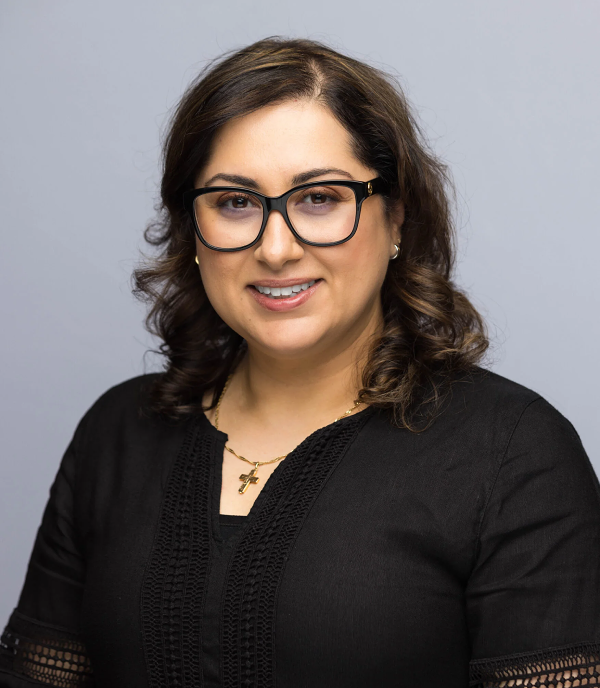
Director, Advanced Prosthodontics Program
Bio: Dr. Dima Ghunaim is board-certified maxillofacial prosthodontist. She completed her dental and advanced prosthodontic training at the University of Maryland School of Dentistry. She then completed a fellowship in Maxillofacial Prosthetics at Memorial Sloan Kettering Cancer Center. Ghunaim then returned to the University of Maryland School of Dentistry to join the oral and maxillofacial surgery department as a clinical assistant professor. She became the director of the Advanced Prosthodontics Program at the University of Illinois Chicago in 2022. Ghunaim specializes in the rehabilitation of patients with head and neck defects or deficits due to cancer therapy, traumatic injuries, alteration in growth and development or congenital birth defects. She also focuses on the dental management of head and neck radiation patients. She is a diplomate of the American Board of Prosthodontics, a fellow of the American College of Prosthodontists, a member of the American Academy of Fixed Prosthodontics and a fellow of the American Academy of Maxillofacial Prosthetics.
Presentation title:Maxillofacial Prosthetics Experience in Advanced Prosthodontics Education
Abstract: This presentation will share the UIC Advanced Prosthodontics Residents’ experience in caring for head and neck cancer and trauma patients at the UIC College of Dentistry, especially the application of immediate jaw reconstruction with prosthetic rehabilitation.
Paul Grippo
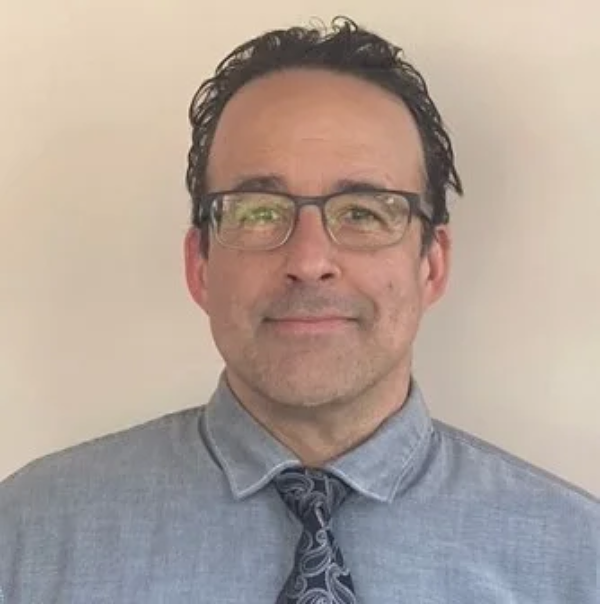
Associate Professor of Medicine
Bio: Paul Grippo, PhD, is an associate professor of gastroenterology and hepatology in the College of Medicine and serves as the program lead for Early Pipeline Trainees for the UI Cancer Center, UIC co-lead for the NCI U54 ChicagoCHEC program, and co-PI for the NIGMS T34 Bridges to the Baccalaureate. He received his PhD at the University of Wisconsin and continues to focus on the design and utility of mouse models of cancer for nearly 30 years.
Grippo was one of the first to target the human mutant KRAS oncogene to mouse pancreas, demonstrating that its expression in acinar cells resulted in acinar-to-ductal metaplasia together with preinvasive lesions. His research theme is on identifying defects in signal transduction pathways and molecular and cellular mechanisms in GI cancers that affect oncogene-induced neoplasia and cancer in genetically engineered animal models.
Grippo has been a recipient of several young investigator awards (PanCAN/AACR, AACR-AstraZeneca, Hirshberg), was honored to serve as a moderator (APA, DDW Annual Meetings), invited speaker (most recently at the Swine Biomedical Conference and NCI Animal Models for Cancer Inception), and referee on multiple NIH/NCI study sections. He has authored 85 published works including some in high-profile journals (PNAS, Oncogene, etc.).
Presentation title: Turning the Ship: Addressing Pancreatic Cancer Health Disparities in Basic Research.
Abstract: Pancreatic cancer is notorious in its lethality, stemming from lack of early detection and combined features making it refractory and/or chemoresistant to most therapies. One consideration would address these and many other disease aspects: assess a complete repertoire of patient-derived tissues in harmony with engaging communities that have been ignored. Noticeable absence of people of color in the research environment, both in sampling and as scientists, have generated data and ideas that are incomplete at best.
Our preliminary findings in a colon polyp study in both mice and human demonstrate that social stress more commonly observed in underrepresented communities can worsen disease progression. Indeed, the demographic with the highest level of hair cortisol, a marker of long-term stress, was highest in Black women, and this was reflected in a mouse model of stress where females had the highest levels of corticosterone than males. In both cases, females had the worst colon polyp burden. Currently, this association is being further explored to establish more clear causative links between stress and developing colon polyps. Based on this, we began designing projects to incorporate health disparities as a central experimental component which includes a diverse investigative team and outreach into the communities we serve. We propose that such considerations will produce more useful findings for all people while diversifying the workforce for greater participation from underrepresented groups.
In previous work with our biotechnology partner (NovaScan), we employed an early detection device that measures the Cole Relaxation Frequency (CRF), where higher readings (106Hz) confirmed the presence of cancer in multiple tissues (lung, breast, skin and pancreas).
Support for this effort began with a policy change. The Illinois General Assembly passed a bill which included a measure that paves a path for introducing a proven early detection strategy for pancreatic cancer in areas that need it most: the Black community. With that as a springboard, we completed a needs assessment in the South Side of Chicago that demonstrates existing gaps in knowledge (at the community and research levels) and existence of continued medical mistrust. Introducing an early detection modality that requires upper GI endoscopy would be challenging without engaging the Black community for their ideas and support.
With the above policy and community engagement in place, CRF measures can be tested to decipher between normal and early stages of pancreatic cancer, namely neoplastic lesions in both mice and human. This work is ongoing but preliminary ex vivo findings in a few mice correlate neoplastic lesions (no cancer) with CRF readings in the 105Hz range (104Hz normal). The work in humans will employ the diverse patient population at UI Health to measure CRF in fine needle biopsy samples from those with chronic pancreatitis, where about half present with neoplastic lesions. If CRF technology is successful in detecting neoplastic lesions prior to over pancreatic cancer, the device will be engineered to fit on an endoscope for in vivo assessment. It must be rolled out with the endorsement of the people who need it the most, namely the Black community, though all are welcome to be involved in such a clinical trial. However, if this future clinical trial does not attract a well-represented patient population, CRF device success would add to health disparities and inequities by creating greater survival in other groups to the further detriment of the Black community.
Richard Gutierrez
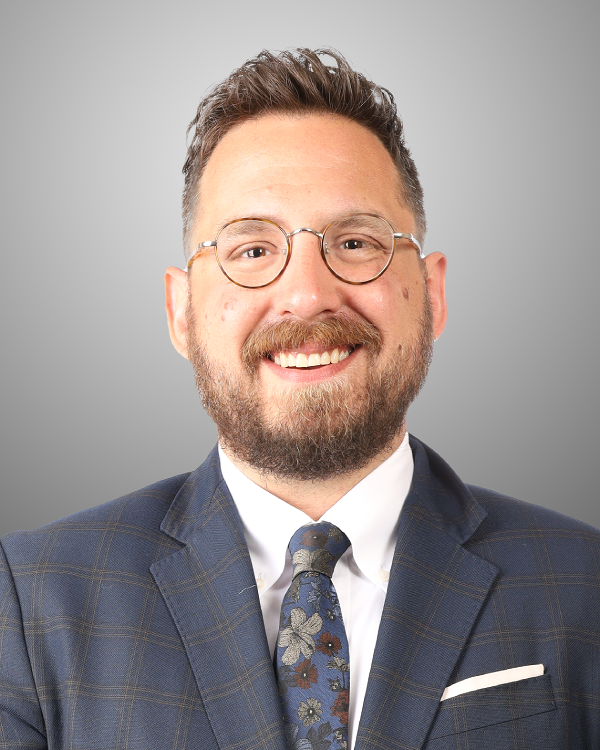
Assistant Professor of Law
Bio: Richard E. Gutierrez is an assistant professor at UIC Law. He has extensive experience as a criminal litigator and has been recognized for his expertise in forensic evidence, serving on boards tasked with developing standards for forensic laboratories as well as training attorneys nationwide about forensic issues. Prior to entering academia, Professor Gutierrez spent two years as a clerk with the Staff Attorney’s Office for the United States Court of Appeals for the Seventh Circuit. He then served for a decade with the Law Office of the Cook County Public Defender, spending most of that time as part of its Forensic Science Division, where he undertook groundbreaking litigation including by acting as lead counsel for the first admissibility hearings held in Illinois on probabilistic genotyping and firearms examination evidence.
Professor Gutierrez’s interdisciplinary scholarship focuses on the validity of pattern matching evidence, the legal system’s ability to appropriately vet scientific evidence, and juror perceptions of expert testimony. His work is published or forthcoming in law reviews and peer-reviewed scientific journals including the Journal of Forensic Sciences; Law, Probability, & Risk; Jurimetrics; and the UC Law Journal. Gutierrez holds a bachelor’s degree in English and history from the University of Florida, and a JD from Chicago-Kent College of Law.
Presentation title: Nailing the Coffin Shut on Firearms Examination
Abstract: Forensic analysts have for decades deployed the results of proficiency tests as proof of the validity of their methods and to buttress their credibility when testifying as “experts.” But the simplicity of such tests has been an open secret for nearly as long. In fact, multiple studies have demonstrated that test items do not reflect casework difficulty, and novices without training in forensic methods have completed tests without committing major errors.
Just last year, however, the nation’s largest provider of forensic proficiency tests, Collaborative Testing Services, released a firearms examination exercise that (albeit unintentionally) bucked this trend and forced participants to confront damaged and poorly marked bullets. The results should trouble even those unfamiliar with the vigorous debates playing out in the courts about firearm examination’s validity. Although the questioned bullets provided to participants were not fired by the same gun as the exemplar bullets in their packets, 22% of test takers failed by “matching” at least one questioned item to the exemplars. Indeed, participants on the whole committed misidentifications 37.4% of the time they offered definitive conclusions about the source of the “challenging” bullets in the proficiency test. Such performance contradicts claims that analysts will rarely err when assessing the source of fired bullets; raises questions about the validity of comparisons performed in the absence of a suspect firearm; and will force litigants and the courts to grapple with the significance of test error when qualifying individual examiners as experts.
Azadeh Haghighi
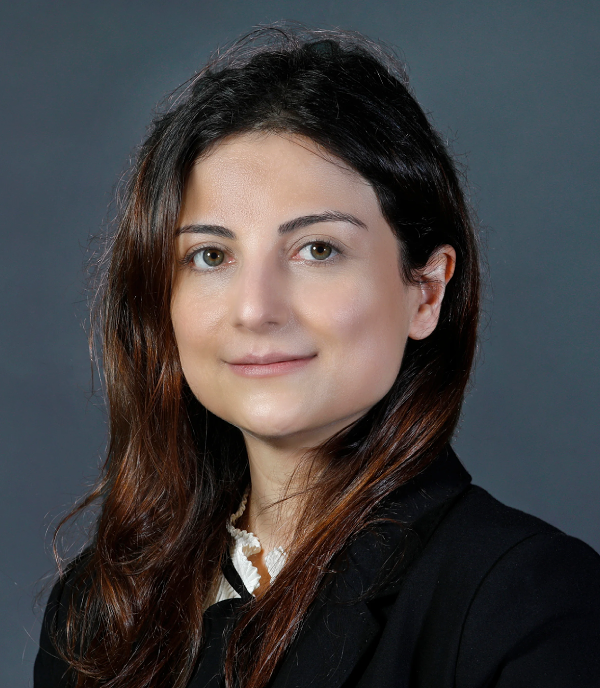
Assistant Professor, Mechanical and Industrial Engineering
Bio: Azadeh Haghighi is an assistant professor in the UIC Department of Mechanical and Industrial Engineering and the founding director of the Smart Manufacturing of the Future Research Group. Her research group advances cutting-edge computational tools and manufacturing innovations tailored to the evolving demands of next-generation smart manufacturing systems, with a focus on data efficiency, generalizability, scalability, efficiency, robustness and operability in dynamic, cooperative and extreme environments. She serves as an associate editor for the Robotics and Computer-Integrated Manufacturing journal and is a member of the Scientific Committee for NAMRI | SME. She is a recipient of the UIC Chancellor’s Translational Research Initiative Award, the IMEC Future of Illinois Manufacturing Faculty Award and the prestigious 2024 Susan Smyth Outstanding Young Manufacturing Engineer Award from the Society of Manufacturing Engineers.
Presentation title: New Era of In-Space Manufacturing: When Artificial Intelligence Meets Physics
Abstract: In-space manufacturing and assembly are vital to NASA’s long-term exploration goals, especially for the Moon and Mars missions. Deploying advanced manufacturing technologies integrating additive manufacturing, welding and robotics in space enables the manufacturing, assembly and repair of structures, reducing logistical burdens and supply needs from Earth. However, the unique challenges and extreme conditions of space —such as high thermal variations, microgravity and vacuum— require novel manufacturing techniques and computational tools to ensure reliability, repeatability, safety and structural integrity. Traditional computational tools for modeling manufacturing processes based on numerical models are too time-intensive for real-time applications and are unable to fully capture the complexities of dynamic manufacturing conditions, while in-space or simulated space experiments, like parabolic flights, are costly and yield limited data, slowing the development of accurate data-driven models.
The Smart Manufacturing of the Future research group at the University of Illinois Chicago is advancing manufacturing technologies for extreme conditions and computational tools that merge physics-based insights with machine learning to create highly accurate models and digital twins. These innovations enable the fabrication of high-quality components across scales — from microelectronics to large habitats constructed by robotic teams on Mars and Moon — designed to meet the demands of critical applications and extreme environments, such as space and aerospace, where data is inherently scarce and costly to obtain.
Hana Hinkle PhD, MPH
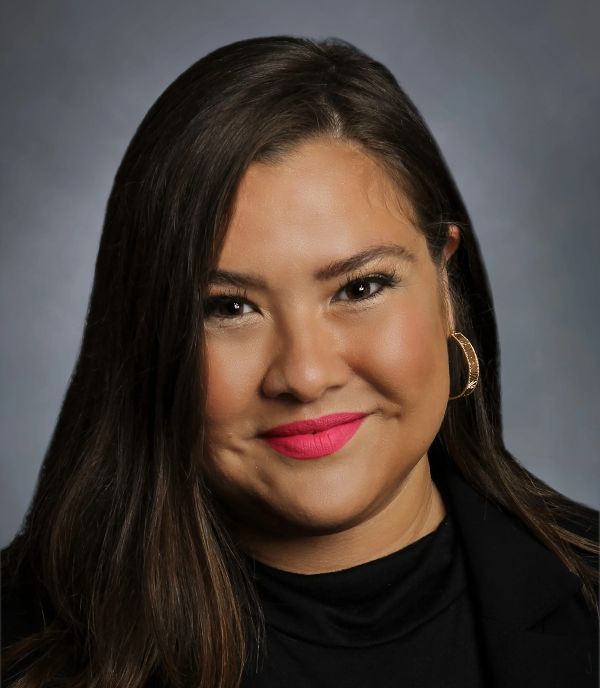
Assistant Dean Rural Health Professions
Director, National Center for Rural Health Professions
Bio: Hana Hinkle is an expert in rural health care, an educator and a dynamic national leader in both public health and rural academic medicine. She currently serves as the assistant dean of rural health in the College of Medicine and the director of the National Center for Rural Health Professions.
The scope of her position goes beyond the Rockford campus to statewide, national and international programs and initiatives. Serves as co-director of NCRHP’s World Health Organization/Pan-American Health Organization Collaborating Centre for Developing and Sustainable Human Resource for Health and Medical Education. Hinkle also serves as the director of the statewide Illinois Area Health Education Centers Network Program a HRSA funded initiative that is focused on health workforce development.
Hinkle serves as the executive director of the nationally-scaled Rural Training Track Collaborative. A 72-member nonprofit that aims to support the development and sustainability of rural residency programs across specialties.
Hinkle is president of the Illinois Public Health Association and is involved number of state and national groups. She has also served as the president of the Illinois Rural Health Association. Hinkle holds bachelor’s degrees in Spanish and psychology, a master’s degree in public health and a PhD in interprofessional health sciences. In 2022, she was named as a Presidential Leadership Scholar by President Clinton, the LBJ Foundation and President George W Bush.
Presentation title: Rural Medicine
Abstract: This presentation will cover the nationally and internationally recognized Rural Medical Education Program, part of the National Center for Rural Health Professions, University of Illinois College of Medicine Rockford. The Rural Medical Education Program is the most successful rural medical education program in the country in terms of placing graduates to practice medicine in rural areas were nearly 70% of RMED graduates are located in rural communities and 94% of Illinois based graduates practice outside of the city of Chicago and in downstate Illinois. RMED uses a unique “grow your own” model where intentional mentorship occurs through various pathways programs across the state to identify young people who may be interested in pursuing a career in medicine. Program strategy, outcomes and opportunities for innovation will be discussed.
Jennifer Jackson
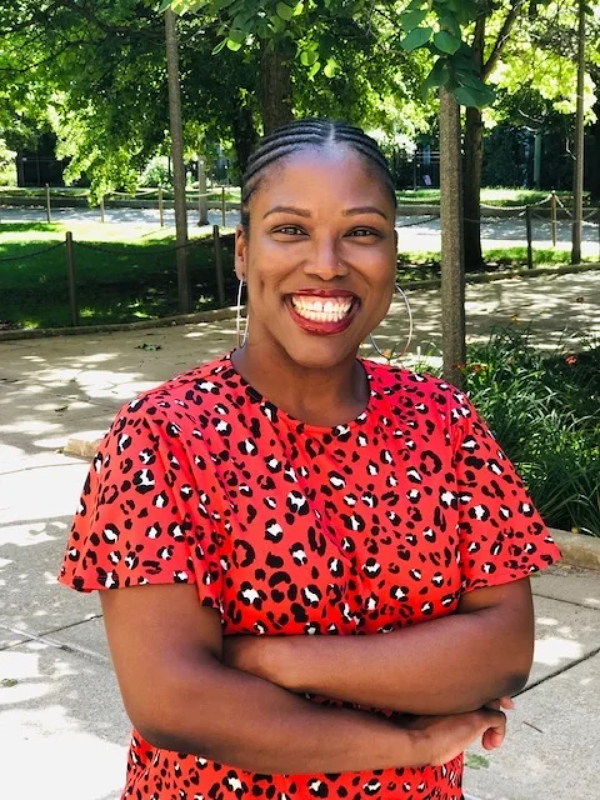
Assistant Professor and Undergraduate Engagement Coordinator, University Library
Bio: In her career as a librarian, Jennifer Jackson has had the opportunity to work as a library instruction coordinator, focus on first-year initiatives and first-year writing programs, collaborate in classroom design, manage learning commons, and lead reference training support for library employees and supervisor student workers.
Since joining UIC in 2016, Jackson’s focus has been to address undergraduate student engagement for the University Library, for which she co-designed the first Undergraduate Engagement Program for the University Library. This program is intentionally designed to focus on the student success of a diverse undergraduate student population, taking a holistic approach, supporting the academic, emotional and cultural needs of students.
As a disabled African American woman, Jackson finds advocacy of underrepresented populations to be an essential aspect of her work and purpose. She served as the Chair for the UIC Chancellor’s Committee on the Status of Persons with Disabilities (CCSPD) from 2019-23.
Presentation title: An Examination of Students’ Needs from 2019-2023: Using Talk-back Boards for Library Programming
Abstract: This student engagement activity and forthcoming paper explores students’ needs and well-being through the University’s Library Undergraduate Engagement Program’s (UEP) Wall of Engagement. Using the qualitative user experience feedback method of talk-back boards, the UEP asked three reoccurring questions of the student population from 2019–23. From these reoccurring questions asked at midterm and final exam weeks, the responses highlight students’ specific needs and identify what students do to take care of their well-being during this time while also articulating what is needed from others. The forthcoming article illustrates parallels to Maslow’s Hierarchy of Needs to further contextualize the identified themes. The examination of the responses from talk-back boards creates pathways for libraries to gain a better understanding of students’ needs. The use of talk-back boards can also be used to determine future library programming and be used as a form of event assessment. The collected responses reflect students’ perspectives at pivotal times in the academic semester and the findings from this programming effort identify the need to continue to support holistic programs that connect students to external supports. These findings also suggest there is a greater need for libraries to continue supporting self-care and well-being programming for student success.
Annette Johnson

Clinical Associate Professor, Jane Addams College of Social Work
Bio: Annette Johnson is a clinical associate professor in the UIC Jane Addams College of Social Work. Her research interests are social and emotional learning and promoting youth empowerment. Johnson has published and presented in both areas and served as a national and local speaker/consultant, where she has focused on helping develop school-based practices based on youth’s strengths and assets.
Johnson served 18 years as director of social work for the Chicago Public Schools. She provided leadership to more than 400 school social workers and consistently developed new models of practice to address the changing needs of students and families. Johnson has served on numerous boards. From 2002 to 2011, she served on the Illinois Children Mental Health Partnership, where she co-chaired the School Policy Committee responsible for developing the Illinois Social and Emotional Learning (SEL) Standards and the policy that required the implementation of SEL approaches in every school in Illinois. In 2009, she co-founded the Jane Addams College of Social Work- Training Institute for School Social Work Professionals (JACSW-TISSWP) upon recognizing the need for additional training for practicing school social workers to keep them abreast of innovations and evidence-based practices.
Presentation title: School Social Worker Effectiveness: Retooling and Enhancing Evidence-Based Practice Through Training
Abstract: Retraining experienced school social workers focusing on evidence-based practices significantly enhances the quality of their interventions. This training equips them with the knowledge and skills to implement research-supported strategies, leading to more effective outcomes for students, especially those with complex social and emotional needs. This presentation will review outcome data demonstrating the effectiveness of the training institute.
Krista Jones DNP, PHNA-BC, RN, FAAN
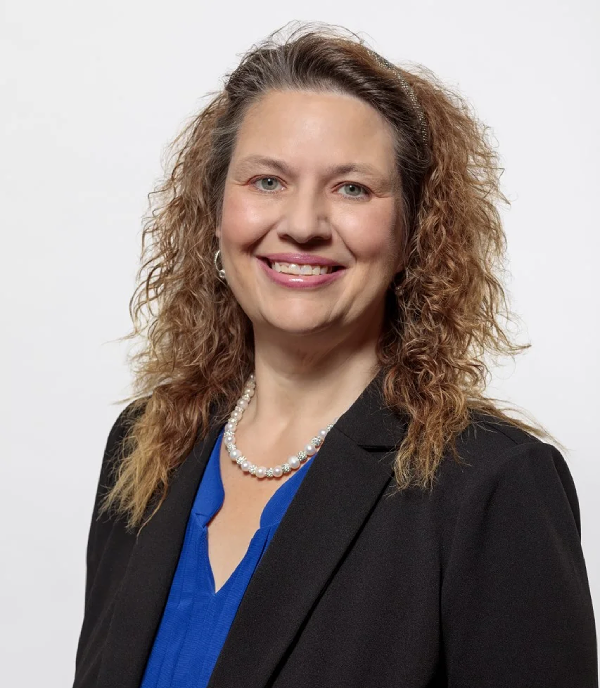
Clinical Professor and Director, UIC College of Nursing’s Urbana campus
Bio: Krista Jones is director of UIC’s College of Nursing’s Urbana campus, a clinical professor in the Department of Population Health Nursing Science, and a board-certified Advanced Population Health Nurse. Her research interests include public health nursing workforce issues, academic practice partnerships, healthy environments, faith community nursing, the equitable care of disabled populations and strategies to enhance the delivery of nursing and interprofessional education. Jones is the primary or co-investigator of 24 population health grants totaling more than $4.5 million. She is the primary investigator of Nursing Experts Translating the Evidence (NExT), a five-time National Library of Medicine funded nurse and librarian collaboration that has provided free evidenced-based programming to more than 2,000 health professionals. She serves as chair of the Council of Public Health Nursing Organizations, immediate past president of the Association of Community Health Nursing Educators, chair of the Illinois Nursing Workforce Center and president of the Champaign County Board of Health. She is an Illinois Board of Higher Education Nursing Faculty Fellow, American Association of Colleges of Nursing Elevating Leaders in Academic Nursing Fellow and a Fellow of the American Academy of Nursing.
Presentation title: Nursing Experts Translating Evidence into Practice
Abstract: Nurses need to document and demonstrate that they engage in research and implement evidence to enhance health care quality, improve patient outcomes and reduce costs. The American Nurses Credentialing Center Magnet Recognition Program® requires hospitals to use evidence-based practice principles. Public and school health nurses provide evidence-based practice services in population settings unaffiliated with academic institutions and hospitals, limiting access to evidentiary resources. Surveys of acute/ambulatory care nurses found low rates of evidence-based practice implementation in U.S. health settings.
As the primary investigator of NExT, Krista Jones leads a multisite team of nurses and librarians. The team has received five cycles of grant funding from the National Libraries of Medicine to intensify nurses’ acquisition, translation, and application of evidence in practice and creation of policy changes to prevent disease and improve health. The sequence of free online learning modalities provides a roadmap for the development of practice partnerships between hospitals, community agencies and academia to share clinical expertise and evidence-based practice resources to impact health outcomes. Two tracks were developed, one specific to public and school health nurses and another for acute/ambulatory care nurses nurses. A total of 37 video lectures ranging from two to 50 minutes were conceived on the following topics: evidence-based practice; population, intervention, comparison and outcomes development, searching National Libraries of Medicine/National Institutes of Health resources; appraising and translating evidence; leadership and professionalism; and evidence dissemination. Seven hours of free certified education units are provided to all participants.
Of the over 2,000 nurses participating in NExT, 95% percent of acute and acute/ambulatory care nurses and 84% of public and school health nurses affirmed they developed new evidence-based practice skills, while 96% and 95%, respectively, reported improved ability to find and utilize systematic reviews, meta-analyses and practice guidelines. Moreover, 96% of participants found the training immediately applicable. One evidence-based practice policy change reported resulted in a 92% reduction in acute care urinary tract infections. Demonstrating sustainable impact, 71% of participants reported sharing acquired skills with peers.
NExT shows promise to impact peer disciplines as we recently launched programming for professionals across the health care spectrum. In the latest phase of this work we created a third series of evidence-based practice modules underwriting seven hours of free CEU programing for physicians, epidemiologists, social workers, health educators, pharmacists, physical and occupational therapists.
NExT has resulted in 40 presentations, 18 publications, and 24 policy changes among participants in one rural health department, and 17 presentations, five publications and four policy changes among those at one rural hospital. Four hospital systems totaling 1,046 beds and more than 7,000 nurses use our model to create sustainable behavior change to seek, translate and apply evidence in practices and policies. This work has also impacted academia and development of the future nursing workforce, now used by six universities in their nursing curriculum.
Internationally, through the Pan American Health Organization, dissemination of evidenced-based practice concepts have reached health care professionals in Guyana and five other countries. NExT was selected as the 2022 Most Influential National Libraries of Medicine Region six project resulting in an invitation by the National Libraries of Medicine national office to present a 2022 webinar.
Thomas Kelley

Associate Professor, Architecture
Bio: Thomas Kelley is a Bolivian American architect raised in Canberra, Berlin, Warsaw, Tegucigalpa, Oxford, Lima and Virginia. Kelley received a Bachelor of Science in Architecture from the University of Virginia and a master’s degree in architecture from Princeton University. He has worked for Brasil Arquitetura Studio in São Paulo, Asymptote Architecture in New York, and Skidmore, Owings and Merrill in Chicago. Kelley is the recipient of the Reyner Banham Fellowship from SUNY Buffalo and a Fellow of the American Academy in Rome (FAAR ’13). In 2012, he co-founded the Cambridge and Chicago-based architecture and design collaborative, Norman Kelley, with Carrie Norman. The practice’s professional and theoretical work — which includes building additions, interior renovations, site-specific drawings, furniture and criticism — examines architecture’s relationship to perception through reuse. Norman Kelley’s work has been published in the New York Times, Cultured, Domus, Dezeen, Metropolis and exhibited at the 14th Venice Architecture Biennial (2014), the Chicago Architecture Biennial (2015, 2017), and the Whitney Biennial (2019). The practice is a recipient of the Architecture League of New York Young Architects Prize (2014), the United States Artists Fellowship (2018), and its design work is represented by Volume Gallery and part of the permanent collection of the Art Institute of Chicago
Presentation title: As-found
Abstract: Like a tailor, Norman Kelley is an architecture and design collaborative that makes alterations to something that already exists in the world. While the economics of reuse are hard to disagree with, we strive to do more with less to keep costs down and impact high. In our work interiors are renewed, furniture is reconditioned, exhibitions are reformatted and criticism is retrospective. We look back to look forward and in doing so, our work succeeds something found. And by found, we are exacting. Like Alison and Peter Smithson, the as-found is something physical, something complete: an extant building, a brick or a piece of furniture. The completeness of the object is subject to examination, however. We breathe our sites, we review original drawings, we speak with the community.
To succeed something found demands that we forgo novelty for something more particular. When we begin to take stock of the ways in which we are conditioned to comprehend people, places and things, the as-found serves to provoke a fundamental question: What is context? Context is everything, context is anything. Context includes and excludes. What is context but a bunch of stuff that one filters in or filters out? Our desire to engage context head on is not meant to replace authorship with refinement or promote a rear-guard aesthetic movement, but rather to incite an egalitarian way of interpreting the world around us. The result is not a question of how regional, or how global, something might appear, but a question of how to make something public, or accessible, and to do so in a manner that completes a place without seeming specious or populist.
David López-García, PhD
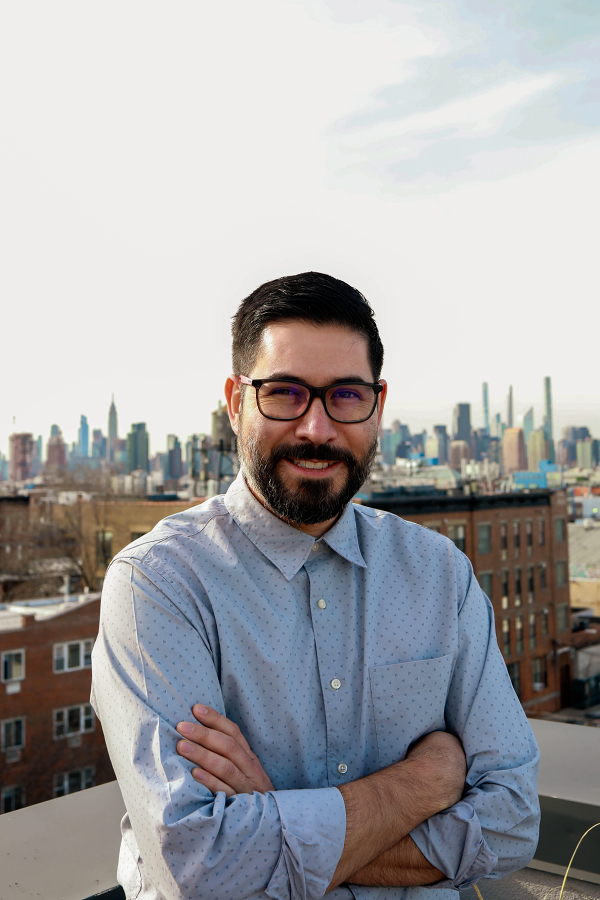
Assistant Professor, Urban Planning and Policy
Bio: David López-García is an assistant professor in the UIC Department of Urban Planning and Policy. He is the founder and co-coordinator of the Urban Spatial Structure Lab at UIC. His research looks at shifts in urban spatial structure in large urban regions and its implications for job accessibility and workers’ quality of life. He also looks at the policy-making process of state-led efforts that aim to influence the evolution of urban spatial structure. He is the Academic Coordinator for the Latin American Chapter of the International Network for Transport and Accessibility in Low-Income Communities (INTALInC-LAC). His research has been published in top international peer-reviewed journals such as Urban Studies, Journal of Urban Affairs, Annals of the American Association of Geographers, Environment and Planning C: Politics and Space, and Estudios Demográficos y Urbanos.
Presentation title: Shifts in urban spatial structure of large urban regions and their implications for accessibility to jobs and workers’ quality of life
Abstract: The term “urban spatial structure” refers to how the different components of an urban area are arranged and interact with each other. Understanding the evolution of urban spatial structures is important because it affects how city residents can access jobs, services, shopping areas, infrastructure and amenities. Urban spatial structure reflects the spatial aspects of urban economies, which have significant implications for the urban experience and overall urban equity. This presentation will emphasize the importance of connecting the study of urban spatial structures with urban planning and policy. Specifically, I will demonstrate how understanding the development of urban spatial structures in large urban areas can contribute to academic and policy discussions about job accessibility and the quality of life for workers. The findings of this research program are not only academic, but they also have practical implications for urban planning, policymaking, and the lives of people looking for employment.
Sarah Martha PhD, RN
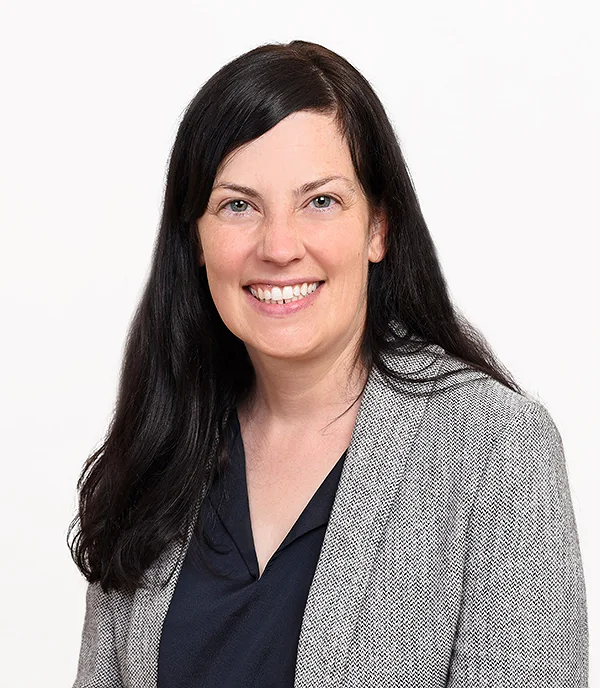
Assistant Professor, Department of Biobehavioral Nursing Science
Bio: Sarah Martha PhD, RN, is an Assistant Professor in the Department of Biobehavioral Nursing Science at UIC College of Nursing. She received her PhD from the University of Kentucky, College of Nursing in 2019. After completing her doctorate, she pursued a two-year post-doctoral fellowship on the Omics and Symptom Science training grant (T32NR016913) in the Department of Biobehavioral Nursing and Health Informatics at the University of Washington, School of Nursing. Dr. Martha’s passion for ischemic stroke research is the result of her professional and academic background, blending her experiences in neuro-critical care nursing with training as a basic scientist. Dr. Martha specializes in bench-based omics research to understand the pathophysiology of ischemic stroke, with the goal of improving patient symptoms, outcomes, and recovery trajectories. Dr. Martha is an early-stage investigator whose primary interest is in developing patient-centered, tailored interventions to reduce symptom burden, enhance functional outcomes, and improve health-related quality of life (HRQOL) in underrepresented ischemic stroke survivors. Dr. Martha’s research has been funded by NIH (NINR K23NR019864) and professional nursing organizations (Sigma Theta Tau International (#17775) and Agnes Marshall Walker Foundation, American Association of Neuroscience Nurses).
Presentation title: The relationship between lipidomic biomarkers and recovery outcomes following acute ischemic stroke
Abstract: Acute ischemic stroke (AIS) is a leading cause of mortality and disability globally, disproportionately affecting Black and Latinx populations who experience increased morbidity and mortality compared to their white counterparts. In the US, someone experiences AIS approximately every 40 seconds, with an annual cost of $34 billion, primarily due to functional changes and lost productivity. Approximately 50% of AIS survivors exhibit fatigue and mood disturbance symptoms, cognitive deficits, and poorer functional and health-related quality of life (HRQOL) outcomes at six months.
This presentation highlights the relationships among lipidomic and oxidative stress biomarkers and symptoms – such as mood disturbances (anger, aggression, anxiety), fatigue, and depression – along with cognitive function and HRQOL outcomes over a six-month period in underrepresented ischemic stroke survivors. In this SparkTalk, Dr. Martha will discuss how these lipidomic pathways play a key regulatory role in complex downstream cellular function. These findings may be of great significance in understanding AIS pathophysiology that has the potential to inform personalized preventive strategies.
Teresa Helena Moreno

Assistant Professor and Librarian
Bio: Teresa Helena Moreno (she/her/ella) is an assistant professor and librarian for Black studies and the UIC College of Architecture, Design, and the Arts. Her scholarship critically interrogates library practices and the role of libraries as cultural institutions. Through applying methodologies and theories found in feminist studies and ethnic studies, her interdisciplinary research critically examines the impact of libraries and information on the knowledge and intellectual traditions of the global majority. Her recent publications connect abolitionist praxis to librarianship by evaluating the criminalization of information through critical information literacy as well as how libraries can enact carceral care. Currently she is writing a monograph that seeks to understand how Library of Congress subject headings impact information about diasporic and minoritized communities. Prior to her mid-career shift to librarianship, she co-ran the administration of the Black studies department and taught in the gender studies program at UIC. While not researching libraries and information, you can catch her around the city enjoying musical theater and opera.
Presentation title: Book Bans and Censorship: Interrupting the Criminalization of Information
Abstract: Book bans and censorship are nothing new, yet in 2022 and 2023 the American Library Association noted the most documented attempts at banning books ever recorded — all attempts at criminalizing information. This threat requires strategies that directly address how to combat criminalization, such as abolitionist pedagogy. Utilizing abolitionist pedagogy offers educators an innovative pathway to understand the relationship between book bans and criminalization in order to create new educational justice approaches to information literacy.
Selva Nadarajah

Associate Professor of Information and Decision Sciences and Bielinski Family Scholar
Bio: Selva Nadarajah is associate professor of information and decision sciences and Bielinski Family Scholar at the UIC College of Business, and serves as Decision Intelligence R&D lead at the Discovery Partners Institute. His research focuses on dynamic valuation and decision-making, particularly in investment and operations, guiding organizations through disruptive transitions and toward sustainability. His doctoral work at Carnegie Mellon University centered on oil and gas conversion assets during the shale boom, which was a major shift toward U.S. energy independence. At UIC, his team studies the clean energy transition using a risk perspective and reinforcement learning, a subfield of AI that learns decisions under uncertainty. Nadarajah’s work has been recognized by several awards from professional bodies in analytics (INFORMS), energy operations and finance (CEMA), and machine learning (NeurIPS), most recently the 2024 Harvey J. Greenberg award for computing and operations research. He is associate editor for the Production and Operations Management and Decision Sciences journals and the Energy area editor for the Information Systems and Operations Research journal.
Presentation title: Decision Centered Decarbonization: Empowering Communities to Address Local Emissions Gaps
Abstract: Meeting the Paris Agreement requires both small and large municipalities to play an active role in climate action. Traditional decarbonization frameworks for municipalities start with data and emissions estimation, encouraging targets aligned with international standards before considering local climate action. However, insights from multi-stakeholder outreach and climate action pilot initiatives in Illinois reveal that this data-to-decisions approach, with its focus on standardizing targets, often contributes to local emissions gaps. These gaps have two critical components: the ambition gap, or the difference between municipal targets and reductions needed to align with climate goals like the Paris Agreement, and the implementation gap, which reflects the challenge of translating these pledges into actionable, measurable outcomes.
The Community Led Environmental Action Network (CLEAN) initiative, launched by the UIC College of Business and the Discovery Partners Institute, leverages decision-centered decarbonization — a novel framework that reimagines how communities approach climate action. This framework reverses the conventional data-to-decision sequence by prioritizing decision-making processes rooted in decision sciences, governance and financial valuation. Rather than standardizing targets, decision-centered decarbonization employs a polycentric governance approach that empowers municipalities to initiate climate action, with investor engagement and standardized peer learning together enabling them to scale decarbonization efforts.
William O'Brien
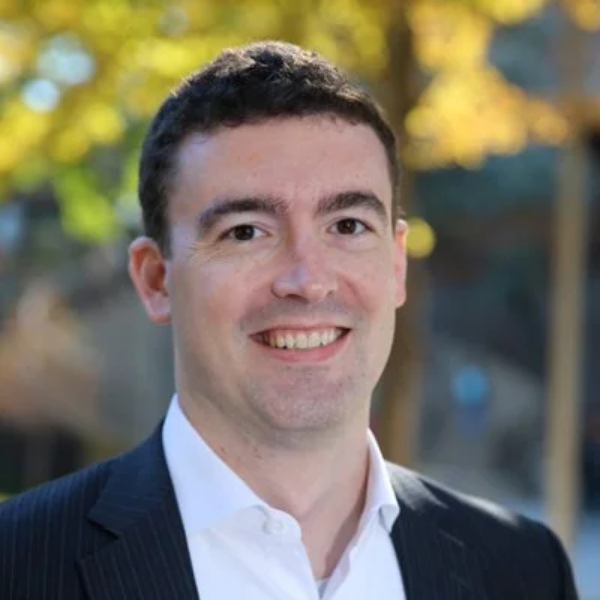
Associate Professor of Finance
Bio: William (Bill) O’Brien is an associate professor of finance and proud to be in his 10th year working at the University of Illinois Chicago. His research interests include the methods and consequences of corporate tax avoidance, conflicts between corporate management and shareholders and how corporate employment dynamics vary across different types of firms. His work has been published in leading academic journals such as the Journal of Financial Economics, the Journal of Accounting and Economics, and Management Science. He is a two-time winner of UIC’s Silver Circle Award for excellence in teaching. Before joining UIC, he worked at Allstate Insurance Company in Northbrook, Illinois, and Hauppauge, New York, for nine years as a financial analyst and manager. He received his BS in Finance at the University of Illinois Urbana-Champaign, his MBA at the University of Notre Dame and his MS in Economics and PhD in finance from Purdue University.
Presentation title: Teaching students how to use the Swiss Army Knife of the business world
Abstract: When I first arrived at UIC, I wanted to provide my students in my Introduction to Finance course with a series of assignments that taught them how to effectively use Microsoft Excel, a spreadsheet program provided for free to all UIC students. Excel is a widely used application in all fields of business that functions as sort of a “Swiss Army Knife” for analysis. More specifically, Excel can be used to create reports, store and analyze large data sets, generate forecasts and maintain and update company budgets; while there are applications other than Excel that can do any one of these tasks in a more sophisticated way, Excel alone can do all of this and more, making it a “must-have” tool for any business major.
While I knew I wanted to integrate Excel training into my class, I wasn’t sure how (or if) it could be done effectively. One of the biggest challenges that university instructors face is finding the balance between what is useful to students and what can be implemented and evaluated fairly and efficiently. For example, students and their employers would likely prefer project-based work to tests and quizzes, but the most compelling, complex projects are largely completed outside of the classroom and are therefore the assignments where academic honesty will be the hardest to police. In an introductory course with hundreds of students, the time-consuming nature of grading project-based work is another hurdle that stands in the way of effective implementation.
My solution was to create a series of Excel assignments where each student had a unique answer but the assignments could still be mass-graded quickly and accurately. The best part was that Excel itself provided the methods needed to achieve this goal. First, I created a fictional company with fictional customers and data provided in Excel. I then designed a series of tasks that would teach students how to manage and analyze this data using Excel’s features and functions. These tasks increased in complexity throughout the semester, and I provided written and video job-aids for all students to help them through the tricky parts (without giving away the answers).
Importantly, at the beginning of each assignment, I ask students to put in their name and nine-digit student ID number. Unbeknownst to them, this information is used in a series of hidden Excel formulas to generate unique fictional customer data for that student. Once the assignments are handed in, I can once again use Excel functions to reverse engineer the unique correct answer for each individual student. These features have allowed me to offer these assignments to more and more students without greatly increasing the time needed to grade everything; as of this year, almost 1,500 students a year complete these assignments, and I am the only person involved in their implementation and grading.
Gail Prins
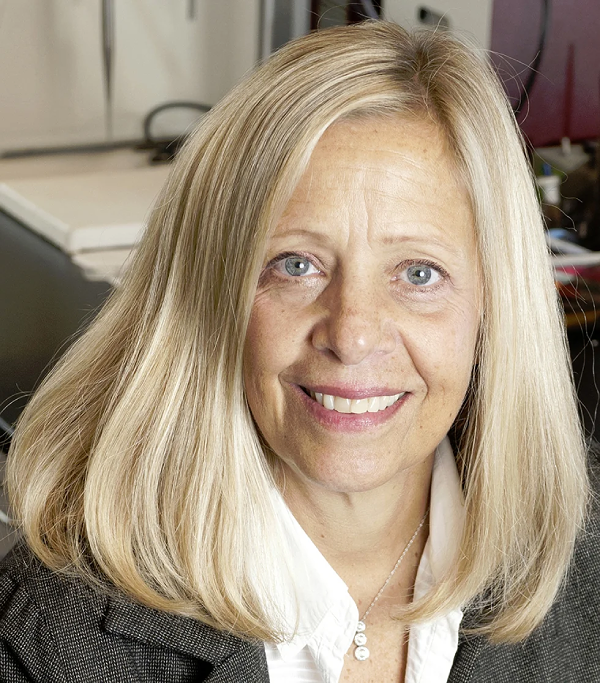
Michael Reese Distinguished Professor
Bio: Gail S. Prins, PhD, is the Michael Reese Distinguished Professor of Urology and Physiology at the College of Medicine and the co‐director of the Chicago Center for Health and Environment (CACHET, an NIEHS P30 Core Center) in the School of Public Health. She is the director of the University Andrology Laboratory at UIC and has been active in translational and clinical male reproductive research and activities for 40 years. Her basic research focuses on hormone actions in the prostate gland including the influence of early life exposure to endocrine disrupting chemicals and toxins on adult prostate cancer risk. Her work established that early life exposures to natural estrogens or EDCs (bisphenol A, arsenic, PFAS) permanently reprogram the prostate and increase its susceptibility to cancer with aging. She has over 200 publications and currently is principal investigator on two National Institutes of Health grants and two Department of Defense awards. She is a past president of the Society for Basic Urologic Research and the American Society of Andrology and currently serves as deputy editor of Endocrinology.
Presentation title: Role of environmental factors in reprogramming human prostate stem cells towards a carcinogenic state
Abstract: It is long recognized that environmental factors play a major role in cancer etiology, and emerging data suggest that specific toxicants may contribute to an increased cancer risk, including prostate cancer. While differentiated prostate epithelial cells can be directly influenced by chemical exposures, properties of stem-progenitor cells make them compelling targets of tumorigenesis. As such, research in my laboratory focuses on these long-lived cells as direct environmental toxicant targets.
Our findings have determined that several compounds, including BPA, PFAS and inorganic arsenic, reprogram normal human prostate stem-progenitor cell populations, leading to increased cancer susceptibility. Of note, the observed alterations in stem cell self-renewal, progenitor cell proliferation and lineage commitment by these compounds are mediated through chemical-specific mechanisms. BPA reprograms the stem-progenitor cell epigenome and transcriptome leading to increased sensitivity of the daughter differentiated cells to estrogen-driven carcinogenesis. Chronic PFAS exposures rewire the prostate stem-progenitor cell metabolome and transcriptome leading to a pre-carcinogenic stem cell fate and enhanced tumor growth. In contrast, low-dose inorganic arsenic triggers autophagic flux blockade in stem-progenitor cell, which activates the p62-KEAP-NRF2 axis, resulting in direct progenitor cell transformation.
Together, our findings document that prostate stem-progenitor cell populations, which express multiple membrane and nuclear receptors, are direct targets for many environmental toxicants that reprogram and transform the cells. Due to the long-lived nature of prostate stem cells, these processes can underpin increased prostate carcinogenic potential over extended time periods.
Shanon M. Reckinger
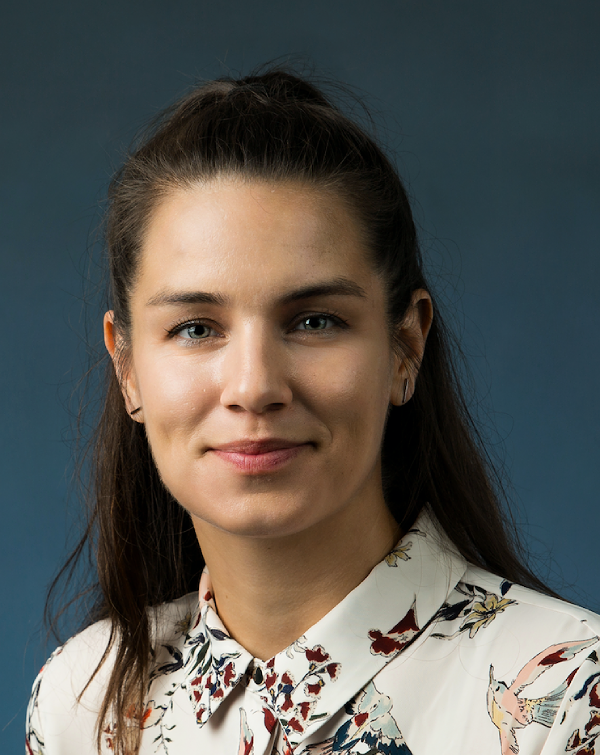
Clinical Associate Professor, Computer Science
Bio: Shanon Reckinger is a clinical associate professor in UIC’s Department of Computer Science and an active researcher in computer science education. Her work is disseminated to the SIGCSE, ITiCSE, and ASEE communities of computer science faculty. She supervises and advises around 50 students in teaching and research each year. Reckinger does curriculum development for and teaches large-scale programming courses, and has received UIC’s College of Engineering Teaching Award in both 2021 and 2024, the 2024 UIC’s College of Engineering Harold Simon A. Teaching Award, and is a recipient of UIC’s Teaching Recognition program. She is a co-PI on several large education focused grants, one of them is the of the largest ever awarded to the College of Engineering.
Presentation title: Inclusive by Design: Scaling Computer Science Education for Every Learner
Abstract: As computer science enrollment surges, educators face the challenge of teaching diverse student populations at scale. Traditional methods often overlook the unique needs of various learners, resulting in inequitable access to careers in technology.
This lightning talk will focus on inclusive approaches to scaling computer science teaching, ensuring that any student, regardless of background or experience, can have access to computer science education. Underrepresented groups — including women, students of color, and individuals from low-income backgrounds — often face systemic barriers that hinder their participation and success in the field. By emphasizing the importance of inclusivity, we can create learning environments that not only attract a diverse student body but also foster their growth and retention.
We will present effective strategies for creating an inclusive curriculum. Culturally responsive teaching practices will be highlighted, demonstrating how integrating diverse perspectives and real-world applications can make computer science more relatable and engaging. For instance, incorporating examples from various cultures and industries can help students see themselves in the material, sparking interest and encouraging deeper exploration of the subject.
In addition to curriculum design, we use collaborative learning as a powerful tool for inclusivity. Group projects, peer learning, pair programming and TA mentorship create opportunities for students to learn from one another, breaking down barriers and fostering a sense of community. By promoting teamwork and shared problem-solving, we can enhance students’ confidence and competence in computer science.
Finally, we’re excited to present our introductory computer science course focused on promoting gender diversity in tech. Designed specifically for women, nonbinary students, and anyone passionate about diversifying the tech landscape, this course has been successfully running for five years. It fosters a supportive and empowering environment that significantly enhances the recruitment and retention of women and nonbinary students. Participants have reported substantial improvements in their enjoyment of the course and the learning environment, as well as increased collaboration, among other positive outcomes.
Kevin Rynn, PharmD, FCCP, DABAT
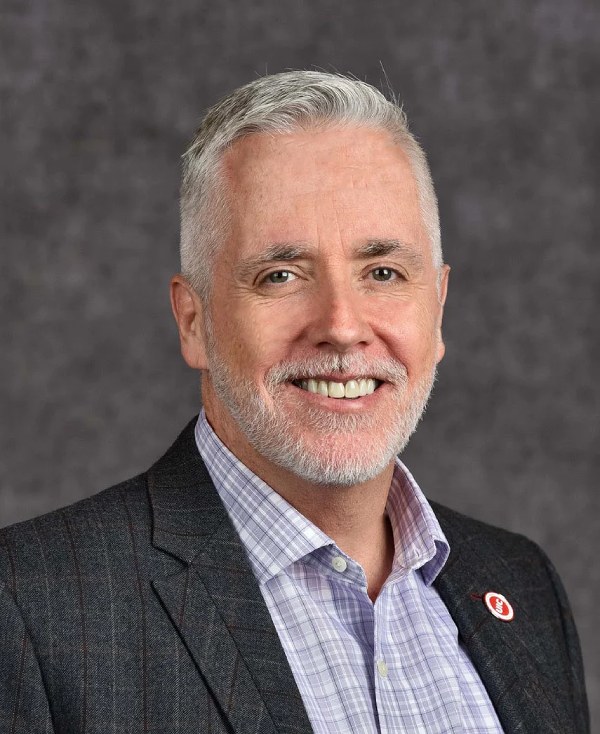
Clinical Professor and Vice Dean
Bio: Kevin Rynn is a clinical professor and vice dean of UIC Retzky College of Pharmacy, serving as the regional dean of its Rockford campus. He received his BS in Pharmacy from Rutgers University, Doctor of Pharmacy from Duquesne University and post-graduate training in emergency medicine and clinical toxicology at UIC. Over his 33-year career he has served on the faculty of UIC, Rutgers and Rosalind Franklin University, achieving toxicology board certification, and being name a Fellow for the American College of Clinical Pharmacy. He has taught, conducted clinical research, practiced in emergency medicine and toxicology, and trained countless students and residents. Rynn has served as a residency program director, implemented various interprofessional education initiatives, and been responsible for developing and maintaining clinical partnerships with pharmacies, health care systems, and pharmaceutical companies including international global health experiences for pharmacy students in Uganda and India.
As vice dean, Rynn works with leadership on the advancement of the College of Pharmacy and its Rockford campus. He works closely with faculty and staff across campuses to develop and implement strategic initiatives, including Rockford’s first UIC pharmacy residencies, rural pharmacy programs, international pharmacy student experiences in India and pipeline programs into the pharmacy profession. He works with the Winnebago County Health Department on public health initiatives including COVID-19 and response to the opioid epidemic. Rynn has numerous publications, presented locally, nationally and internationally, and serves on various professional advisory boards and committees to advance the profession of pharmacy and the UIC reputation.
Presentation title: Rural Focused Interventions to Actively Develop and Train for Rural Pharmacy Careers
Abstract: Rural Americans rely on pharmacists for more than their medications. Pharmacies are often the only healthcare service within a reasonable distance for many in rural communities. Therefore, residents in these underserved locations rely on their pharmacists for non-traditional services, help navigating the healthcare system, and overall leadership around the health of their communities.
UIC Retzky College of Pharmacy expanded its educational programs to the UIC Health Sciences Campus Rockford in 2010 and began the Rural Pharmacy Education (RPHARM) program. The goal of RPHARM is to recruit and train indiviudals from rural backgrounds, or interest in practicing in rural communities, to graduate and serve in these environments. UIC Student pharmacists train interprofessionally with Rural Medicine (RMED) students and the University’s National Center for Rural Health Professions. To date 62 pharmacists have graduated from UIC with an RPHARM concentration, 44% of these individuals practiced in rural locations upon graduation; RPHARM graduates first positions were primarily in community (62%) and hospital (15%) pharmacy practice. In a newly published survey of these graduates, data from 54 individuals revealed that 40% currently work rurally, 35% have always practiced rurally, 57% are working less than 50 miles from their hometown, and 74% are practicing in Illinois. The College of Pharmacy is pleased with these outcomes and the program’s success in attracting and training individuals to practice rurally and in the State of Illinois. The College strives to do more to improve these numbers, a recent 3-year $864,000 grant received from the McKesson Foundation will help expand rural pharmacy initiatives in the State. Through a triple aim the College will expand pipeline initiatives for high school and college students, taking pipeline programs on the road throughout Illinois to educate and attract individuals to the profession of pharmacy. Additionally, the current student curriculum is being expanded to increase interest and cultural competency in rural pharmacy practice and increase awareness of rural healthcare needs. Through the grant, funds are available for student housing to remove this barrier and increase selection of clinical training rotations with rural pharmacists in Illinois. Lastly, efforts for current practicing rural pharmacist will begin that include educational support and engagement with pharmacists throughout rural Illinois.
UIC Retzky College of Pharmacy and its RPHARM program are committed to improving the care of patients from rural communities by increasing the pharmacy workforce and services to these individuals.
Dan Salas
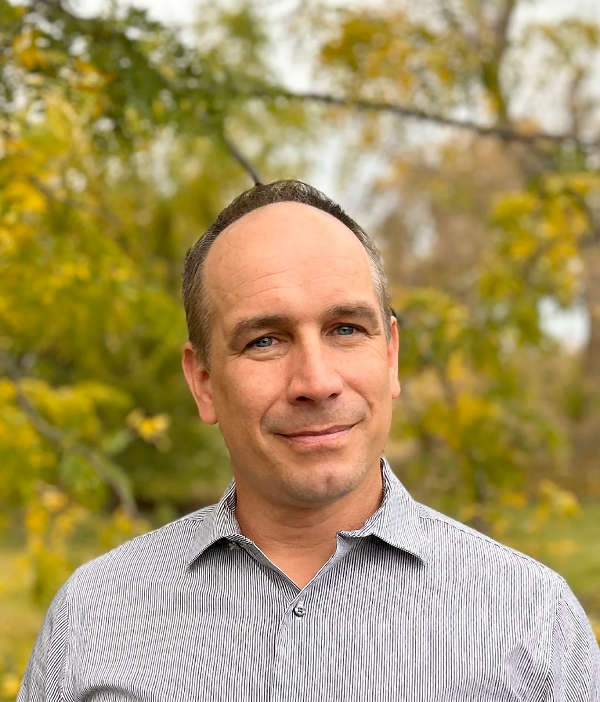
Director, Sustainable Landscapes
Principal Research Specialist
Bio: Dan Salas is the director of the Sustainable Landscapes Program at UIC’s Energy Resources Center, where he and his team work on integration of biodiversity and infrastructure. The program facilitates to the Rights-of-Way as Habitat Working Group, which has lead initiatives in nationwide monarch butterfly and rare bumble bee conservation, developed research and tools supporting pollinator habitat on large scale solar, and other industry collaboration. Salas is a certified senior ecologist by the Ecological Society of America and decision analyst certified by the U.S. Department of Interior.
Presentation title: Migrating to a Sustainable Future: Landscape Conservation through the Monarch Butterfly Conservation Agreement
Abstract: Since 2020, UIC’s Energy Resources Center has administered a nationwide program that promoted monarch conservation on energy and transportation lands. This program encourages conservation practices on powerlines, pipelines, solar farms and roadsides in exchange for regulatory assurances under the U.S. Endangered Species Act. For many, monarch conservation is one step toward creating more sustainable landscapes around infrastructure. In doing so, UIC is supporting pollinators and other wildlife, while also creating healthier lands for people, and safe, reliable transportation and energy systems.
This talk will highlight the monarch conservation program, known formally as the Nationwide Candidate Conservation Agreement with Assurances for Monarch Butterfly on Energy and Transportation Lands, or, more concisely, “the Monarch CCAA.” Participants will learn about the program, its engagement, and how it benefits monarchs, infrastructure and communities.
Kimberly Schonert-Reichl

Professor, NoVo Foundation Endowed Chair in Social and Emotional Learning
Bio: Kim Schonert-Reichl is the NoVo Foundation Endowed Chair in Social and Emotional Learning and professor of psychology at UIC. A former middle school teacher and alternative high school teacher for adolescents at risk for dropout, she is a renowned expert in social and emotional learning, with research focusing on the development of empathy, compassion, altruism and resilience in children, adolescents and educators. Schonert-Reichl has received numerous awards for her research, including the 2021 Janusz Korczak Medal for Children’s Rights Advocacy, the 2019 Postsecondary Leader of the Year Award and the 2015 Joseph E. Zins Distinguished Scholar Award. She also earned the 2009 Paz Buttedahl Career Achievement Award for her research contributions to the community beyond the academy. Schonert-Reichl is a board member of the Collaborative for Academic, Social, and Emotional Learning (CASEL), serves on the Steering Committee for Karanga: The Global Alliance for SEL and Life Skills, and chairs the Scientific Research Advisory Committee for the Goldie Hawn Foundation. She also advises UNESCO’s Mahatma Gandhi Institute on SEL and is the Editor-in-Chief of Social and Emotional Learning: Research, Practice, and Policy. Since 2006, she has participated in dialogues with the Dalai Lama on cultivating compassion and educating the heart.
Presentation title: Nurturing Hearts and Minds: Advancing the Science and Practice of Social and Emotional Learning
Abstract: Promoting the social and emotional competence, well-being and resilience of students —along with their happiness, optimism, empathy and compassion — has long been a priority for researchers, educators and parents. This focus on fostering competence and preventing educational, psychological and behavioral problems is essential for student success both in school and in life.
Recent advancements in social and emotional learning have illuminated the critical role that competencies such as self-regulation, empathy and prosocial behavior — encompassing kindness and altruism — play in enhancing students’ overall development and well-being. In the past decade, a growing body of research has documented the positive impacts of social and emotional competencies on students’ academic achievement, mental health and interpersonal relationships.
Kimberly A. Schonert-Reichl’s presentation will provide an overview of groundbreaking research that underscores the importance of promoting social and emotional competence within educational settings. This research highlights not only the skills necessary for students to thrive but also the need for comprehensive approaches to social and emotional learning in schools. Schonert-Reichl will highlight her research on various social and emotional learning initiatives implemented in the U.S. and globally, showcasing programs developed based on rigorous research and best practices. Through her extensive work, she has evaluated the effectiveness of these initiatives, demonstrating their capacity to enhance students’ and educators’ self-regulation, empathy and prosocial behaviors. Central to this presentation is an exploration of the processes and mechanisms that underpin students’ and teachers’ social and emotional development in educational environments. Schonert-Reichl will discuss the theoretical foundations of social and emotional learning, drawing from insights in mindful attention awareness, positive psychology and developmental science. By understanding these foundational theories, educators can better implement social and emotional learning practices that resonate with students and contribute to their holistic development.
Moreover, the presentation will provide practical suggestions and implications for future research aimed at promoting students’ self-regulation, empathy, compassion and kindness. Schonert-Reichl will emphasize that the explicit and intentional promotion of social and emotional competence is crucial for cultivating supportive and effective learning environments. She will also address the challenges educators may face when integrating social and emotional learning into their curricula and offer strategies for overcoming these obstacles.
In conclusion, Schonert-Reichl will advocate for a systemic approach to social and emotional learning that prioritizes the social and emotional needs of students as integral to their academic and personal success. By fostering an educational climate that values and nurtures social and emotional competencies, we can equip students with the skills they need to navigate the complexities of life beyond the classroom. The future of education depends on our commitment to this critical area of student development, making it imperative for educators, researchers and policymakers to collaborate in promoting and sustaining effective social and emotional learning practices in schools.
Benjamin Shaw, PhD, MPH
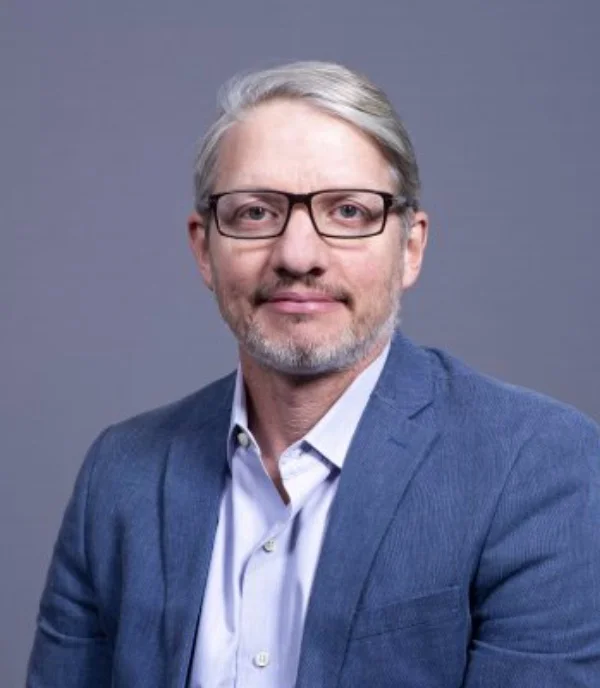
Professor, Community Health Sciences
Bio: Benjamin Shaw, PhD, MPH, is a professor and director of the Division of Community Health Sciences at the UIC School of Public Health. His research focuses on social and behavioral determinants of health across the life course, with an emphasis on healthy aging. He is a Fellow in the Gerontological Society of America, and since 2011 he has been an invited Guest Researcher at the Karolinska Institute’s Aging Research Center, in Stockholm, Sweden. He received a PhD (2002) and MPH (1996) from the University of Michigan School of Public Health, and a BA (1993) in Psychology from Colgate University.
Presentation title: A formative and participatory evaluation of the city of Chicago’s Health Equity Zones initiative
Abstract: In Chicago, Illinois, the third-largest city in the United States, the average white person lives about 10 years longer than the average Black person. In the face of such large racial gaps in life expectancy, the Chicago Department of Public Health has been working closely with community partners to implement new health equity programs. These innovative programs are intended to address the underlying causes of race-based health inequities, with a particular focus on altering the power dynamics between city government and community-based organizations, and changing systems and structures within city government that may be barriers to health equity. In 2022, the Chicago Department of Public Health began working with a team of scholars and students from the Division of Community Health Sciences at the UIC School of Public Health to conduct a formative process evaluate these initiatives. This presentation will describe the current results of this evaluation, with an emphasis on our key findings related to the promise and challenges of the Healthy Chicago Equity Zones initiative.
Alisa Velonis
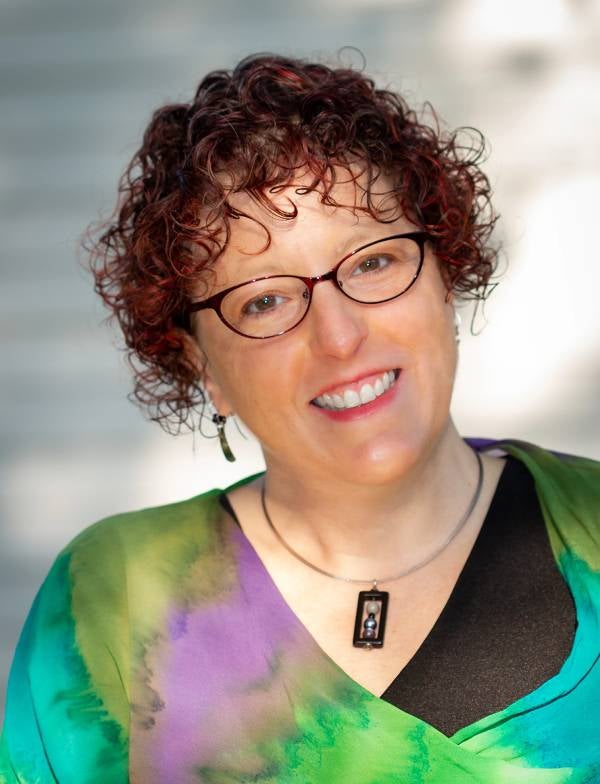
Associate Professor, Community Health Sciences
Bio: Alisa Velonis is an associate professor and the director of the Center of Excellence in Maternal and Child Health at UIC’s School of Public Health. As a researcher and public health practitioner, Velonis brings a passion for generating solution-focused evidence to address gender-based violence, structural inequities and public health. Prior to her life as an academic, she spent nearly two decades working in public health and community-based settings focused on reproductive health, HIV services and domestic violence. Velonis is dedicated to applied research using engaged approaches, such as concept mapping, implementation science and community-based participatory research.
Presentation title: Moving Beyond Community-Engaged Classrooms
Abstract: Increasingly, schools of public health are being encouraged to go beyond required practicums and integrate experiential educational activities into standard curricula. Most common approaches to course-based community engagement push student/partner meetings outside of the classroom and tend to prioritize the assignment parameters over the true needs of community partners.
Collaborator-Partnered Teaching exemplifies a new level of academic/community partnership, in which partners are incorporated in the class as co-teachers and co-learners. This talk will describe a pilot collaborator-partnered program evaluation class that centered power-sharing between academic and community-based organization partners. Staff from a community-based organization collaborated weekly with graduate students and faculty instructors to jointly develop a program evaluation plan. The partners received compensation, access to course materials and university NetIDs, and participated fully in all class activities; however, collaborators did not participate in grading. They served as co-teachers and co-learners, attending most class sessions, preparing lessons and working alongside students. The course was made possible through the Community-Engaged Teaching and Learning Initiatives (CEnTL) (PI Hebert-Beirne), which provides financial and administrative support to faculty to create learning environments grounded in liberatory pedagogy including engaging in problem-posing, emphasizing praxis, embracing dialogue and practicing belonging in the learning space. The CEnTL team provided mixed-methods evaluation support throughout the duration of the pilot class.
Students remained highly engaged and motivated to meet the needs of the collaborators, although many found the necessary fluidity of doing real-time evaluation development challenging. The benefit to the collaborators went beyond receiving an evaluation plan; preparing to talk with students and participating in discussions gave them added skills and a deeper understanding of the program than they had at the outset. Effective collaborator-partnered teaching requires additional time and resources, compared with traditional community-partnered approaches. Yet it reflects the power-sharing and cultural humility that is central to effective public health work and provides additional benefits to both students and collaborators.
Angela Walden, PhD
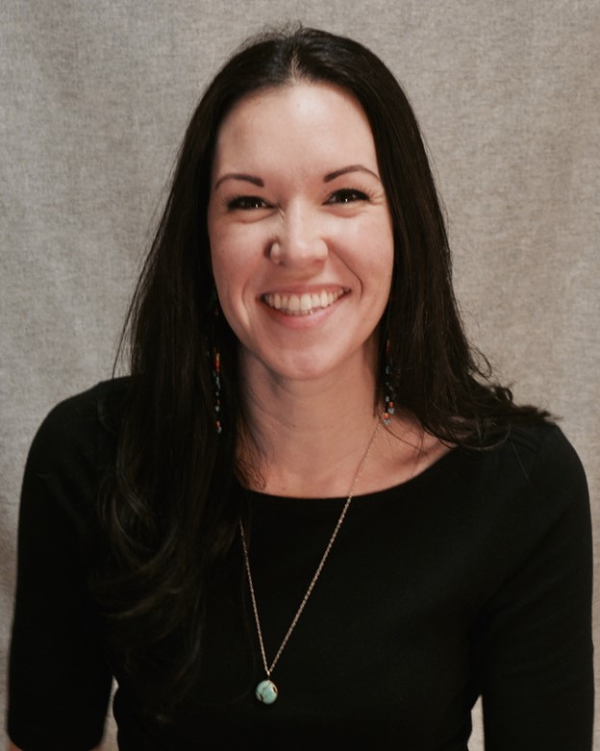
Special Advisor on Native Students
Bio: Dr. Angela Walden is the Special Advisor on Native Students within the Office of Student Success and Belonging and the Native American Support Program. She is a Clinical and Community Psychologist and enrolled citizen of the Cherokee Nation. Her work focuses on DEI efforts in higher education, including increasing representation and retention of Native American students, staff, and faculty. In addition, her research examines community-based and systems-oriented mental health interventions and supports, with an emphasis on access and implementation. She has held faculty appointments at UIC in Psychiatry, Medicine, and Psychology. She also served as Assistant Vice Chancellor for Diversity Initiatives. In this role, she launched the Native American/Indigenous Inclusion and Belonging initiative and was the inaugural Director of the Bridge to Faculty Scholars Program. Prior to returning to UIC, Dr. Walden served as a Scientific Program Director at the National Institutes of Health for the Native Collective Research Effort to Enhance Wellness, an initiative focused on supporting research led by Tribes and Native American serving organizations to address overdose, substance use, and pain.
Dr. Walden was featured in the 2022 documentary, “Imagining the Indian,” and her work has been recognized by several awards, most recently the 2022 Cherokee Phoenix Seven Feathers Award for contributions to education.
Presentation title: Supporting Native American Inclusion in Higher Education: Identity, Sovereignty, and Best Practices
Abstract: Cultivating Native American student success is critical for addressing disparities in higher education and increasing the presence of Native Americans in research and faculty positions. Generally, Native Americans are often overlooked in DEI discussions and, when included, there is often a lack of awareness of their particular needs and considerations. To successfully recruit and retain Native American students, faculty, and staff, it is imperative to understand the factors that uniquely characterize this population and best practices to promote their inclusion.
As peoples, Native Americans hold a unique position in the United States due to the history and current political status of Tribes as sovereign nations. An awareness of terms associated with Native American identity and sovereignty is foundational for building strong relationships with Native American Tribes and communities and recruiting and supporting Native people.
Further, Native Americans face distinctive challenges related to their invisibility in mainstream spaces. There is a prevalence of representations in which Native Americans are either entirely absent or depicted in stereotypical ways. An understanding of local and national contexts of Native American people and communities is necessary for fostering awareness and promoting action to increase sense of belonging for Native Americans.
Finally, knowledge of best practices is necessary to build the collective action needed to effectively implement and sustain support that will result in Native American inclusion across all levels of the university. This talk invites the audience to reflect on the roles each of us can play in increasing Native American recruitment, belonging, and success in all levels of higher education.
Rebecca Woodard
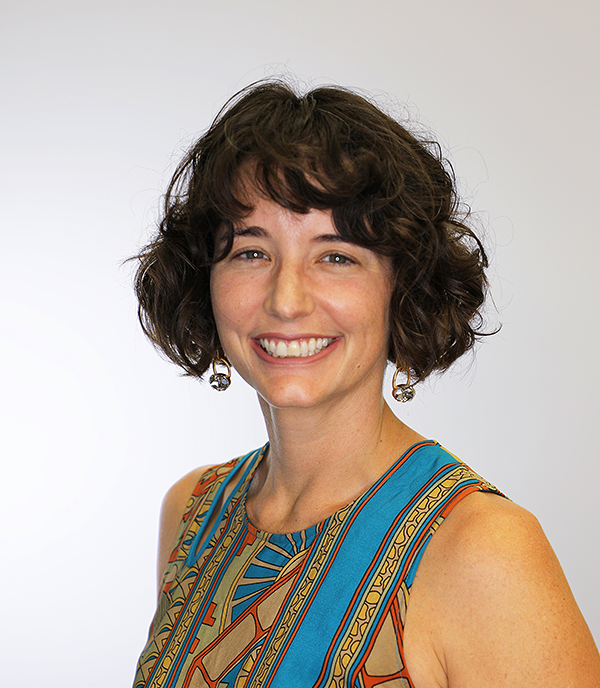
Associate Professor of Curriculum and Instruction
Bio: Rebecca Woodard is an associate professor of curriculum and instruction with a focus on literacy, language and culture. She is the faculty director for the Chicago Area Writing Project, a professional development network that serves teachers of writing at all grade levels and in all subject areas. She is also a co-editor of a practitioner journal for the National Council for Teachers of English called Language Arts, which focuses on issues concerning teaching and learning literacy with children of preschool through middle school age. Before pursuing a career in research, Woodard worked as an elementary and middle school teacher. At UIC, she has participated in the Teaching Sustainability Initiative and has been awarded the Teaching Recognition Program Award, the Graduate Mentoring Award and the Award for Teaching Excellence. Woodard’s current research explores the intersection of literacy, science, art and justice-oriented pedagogies, with a particular interest in teaching climate change through the English Language Arts. She recently co-authored a book for Teachers College Press with Kristine Schutz called “Teaching Climate Change to Children: Literacy Pedagogy that Cultivates Sustainable Futures.”
Presentation title: Literacy Teaching for Sustainable Futures
Abstract: It is through diverse perspectives, expertise and collaborations that human beings have the best chance to radically reimagine our planet’s future. While the study of climate change in K-12 contexts is often positioned as the domain of science and adolescent education, the English language arts offer unique affordances to support younger children’s consideration of its ethical, social, political and cultural dimensions, and to develop their meaning-making and communication skills. This SparkTalk shares collaborative work done with Kristine Schutz to develop a vision of literacy-based climate pedagogy that explores interconnectivity, relationality and action as it fosters critical literacy practices of reading, writing and social action. It showcases work with Chicago pre-K, elementary and middle-grades teachers and children, as well as through the UIC Teaching Sustainability Initiative and literacy-based professional organizations, to cultivate a network of pre-K-12 teachers seeking teach literacy in urgent and worthwhile ways that cultivate sustainable futures.